Names like Colleen and Shannon might come to mind when you think of Irish baby names. But these names are actually rarely found in Ireland. Instead, they became popular in other countries, either as anglicized versions of traditional Irish names or Irish words (like Colleen from the Irish “cailin,” meaning “girl”) or references to Irish counties or landmarks (as in the River Shannon).
However, if you want to give your tot a traditional Irish name, here are several suggestions straight from the Emerald Isle.
Siobhan (pronounced “shiv-awn”)
Often, the oldest Irish names are the most beautiful. Siobhan is one that’s been consistently popular throughout the years — on both sides of the Atlantic. Name experts argue over the origin of Siobhan: It may be a feminization of John or the Irish/Gaelic version of Joan, but both are far too boring for such a melodic, mysterious choice. This is definitely a name that needs to be spelled out.
Several early Irish queens were named Siobhan, and it was introduced to the American public by actress Siobhan McKenna, who starred in “Doctor Zhivago” in 1965. In more recent years, Stephenie Meyers gave the name to one of her “Breaking Dawn” vampires, and J.K. Rowling used it in her novel “The Casual Vacancy.” Another variation of the name is Shivaun.
Eamon (pronounced “aim-on”)
The first Taoiseach (prime minister) and later President of Ireland was called Eamon (de Valera), which means “keeper of riches” or “wealthy protector.”
The late de Valera was born in the U.S. to an Irish mother and a Cuban father, so there’s a historical American connection there, but Eamon is a traditional Irish name that’s never taken off in the U.S. However, if you’re looking for a twist on the insanely popular Aidan (or Aiden), Eamon is worth considering as well as the variation, Eamonn.
Eire (pronounced “er-a”)
Considered the goddess of Ireland, Eire (or Eriu in ancient times) serves as the modern personification of Ireland. In fact, the name means “from the island to the west” and is the Gaelic name for Ireland.
It’s considered to be a variation of the more common, Eireann or Erin.
Brendan
Brendan might seem like a contemporary name, but it goes way back, being bestowed upon baby boys in Ireland since at least the sixth century. Saint Brendan of Clonfert (a.k.a. Brendan the Navigator, Brendan the Voyager, Brendan the Bold and Brendan the Anchorite) is one of the early Irish monastic saints and one of the Twelve Apostles of Ireland.
It’s believed that he lived in Ireland from 484 to 577, and as a young priest, he set out on a seven-year-long journey in search of the Garden of Eden. Although he didn’t find it, he had a pretty exciting voyage, coming across everything from people with swine heads to giant fish. He definitely earned his title as the patron saint of sailors. Many people believe Saint Brendan may have reached America on his journey, many centuries before Christopher Columbus did.
Aoife (pronounced “ee-fa”)
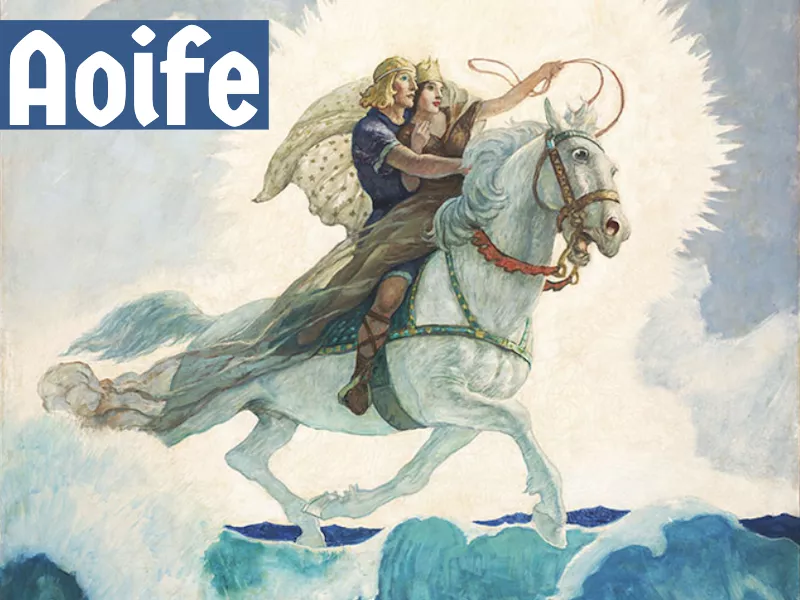
Another very old Irish name, Aoife is even more charming than the more popular Ava or Eva. It’s no surprise Aoife means “beautiful or radiant.” In one Irish legend, Aoife was the fiercest female warrior in the world.
But in another one, Aoife had an unappealing side. As the second wife of King Lir, she was so jealous of his love for the four children from his first marriage (who also happened to be her nieces and nephews) that she lured them to a lakeside, turned them into swans and put a 900-year curse on them. But Aoife did get her comeuppance — she was turned into a crow.
Fionn (pronounced “fee-un” or “fee-on”)
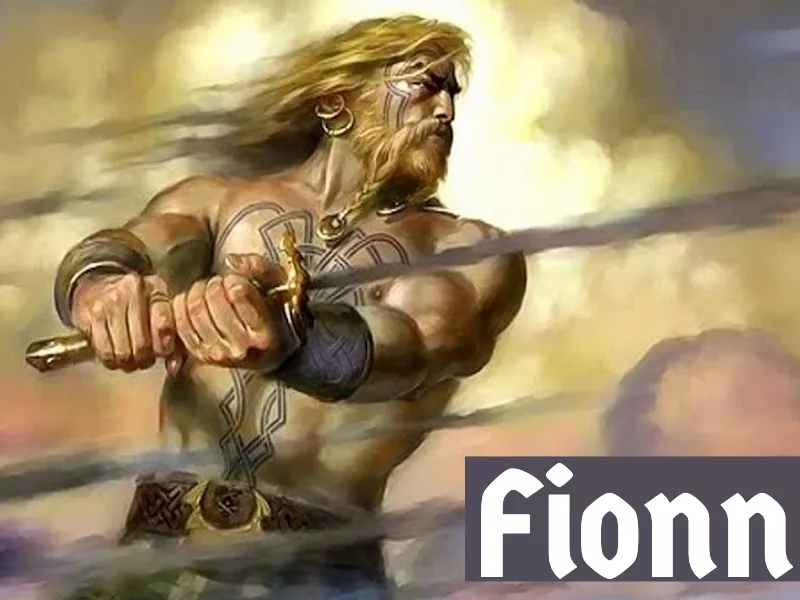
Fionn MacCumhaill (also known as Finn MacCool) is probably Ireland’s most famous mythological hero. A member of the small, semi-independent warrior bands known as the Fianna, who acquired divine wisdom by eating an enchanted salmon of knowledge, he is said to have created the Giant’s Causeway, an area of about 40,000 interlocking basalt columns in County Antrim.
The modern Irish form of Finn, which means “fair or white,” is Fionn, and in Ireland, it’s way more popular than its predecessor. American parents remain faithful to Finn, however — it ranked at No. 166 on the boys’ name chart in 2018.
Fiona
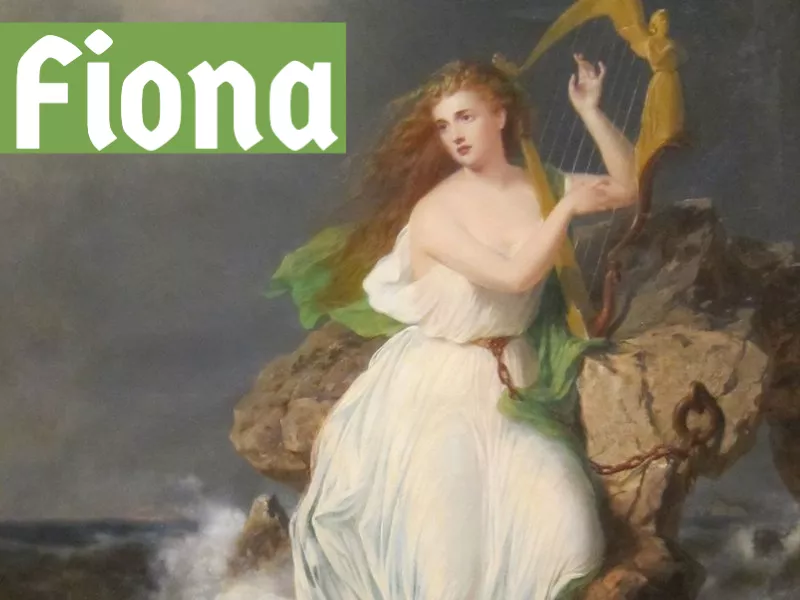
The feminine form of Fionn, Fiona means “fair, white, beautiful” in Gaelic.
Singer Fiona Apple and the character, Princess Fiona, from the “Shrek” movies have brought this name back in a big way.
Niall (pronounced “nye-al”)
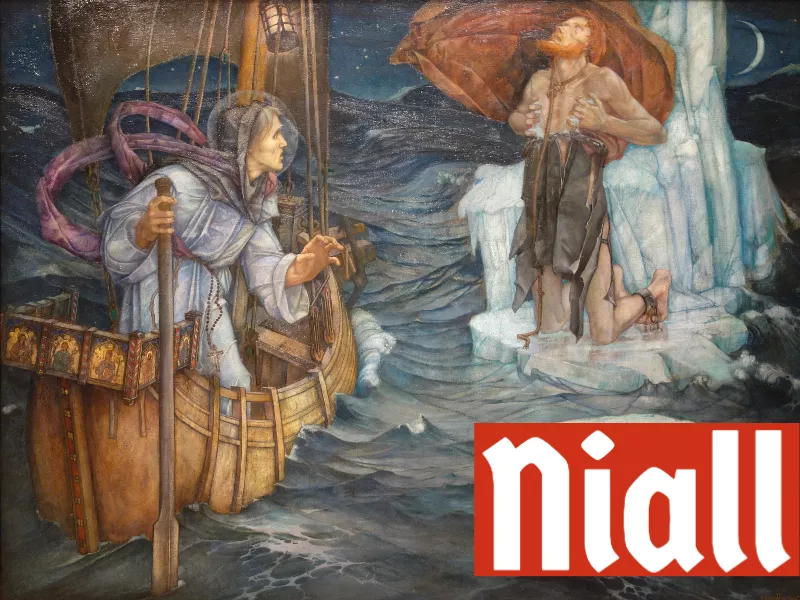
This boys’ name has an Irish origin meaning of “cloud” and was used by several of the high kings of Tara, a title of authority in ancient Ireland. In fact, the most famous was a semi-mythological king known as Niall of the Nine Hostages, who is said to be an ancestor of current-day O’Neill and MacNeill clans.
While it sounds similar to the more-common Neil, the Irish spelling and pronunciation definitely make it cooler.
Caoimhe (pronounced “qwee-vuh” or “key-vuh”)
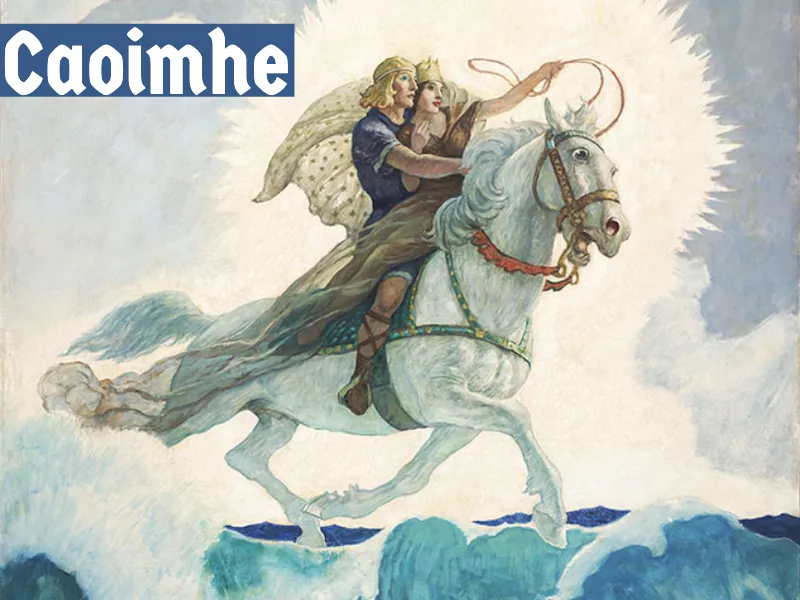
Caoimhe comes from the Irish word “caomh,” which has several positive meanings, including “beautiful,” “precious,” “gentle,” “graceful” and “beloved.” This distinctive name is also that of an Irish saint. It’s consistently ranked in the top 20 girl baby names in Ireland, but even there, they acknowledge the confusion that can arise over its pronunciation (three vowels together is always going to throw the average person) and opt for an easier spelling.
Aside from the Irish peace activist Caoimhe Butterfly (is that a superhero name or what?), you won’t come across many Caoimhes in real life or fiction. That makes it the perfect choice if you want your kid to be truly one of a kind. Other variations include Keva or Keeva.
Gearoid (pronounced “ger-oh-id”)
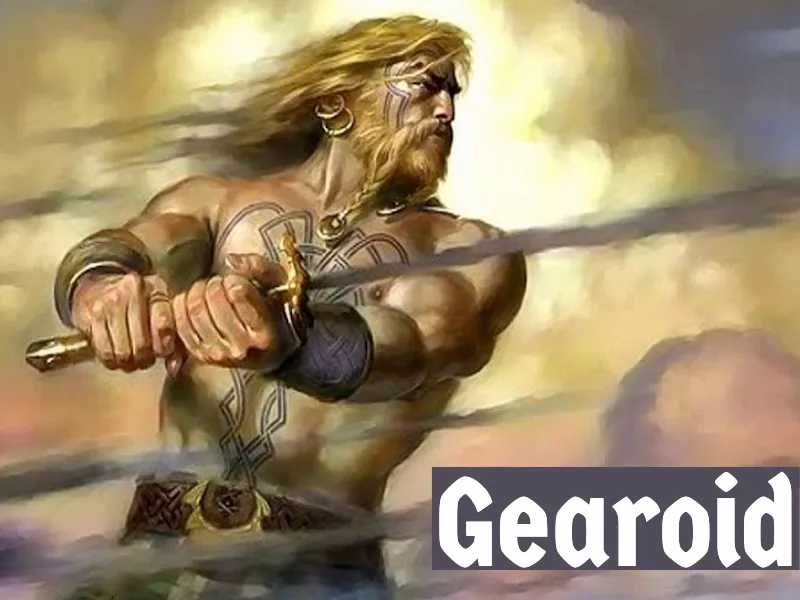
As the Irish variation of Garret or Gerald, Gearoid means “spear carrier” (“gearr” is Celtic for “spear”). It was a popular name among Irish families in early medieval times and remains fairly common today. In its home country, the most notable bearer of the name was Garret FitzGerald, who served as Taoiseach of Ireland from 1982 to 1987.
In the U.S., the name Garrett has experienced a surge over the last century, rising from No. 522 in 1908 to its peak at No. 74 in 2000.
Eabha (pronounced “ay-va”)
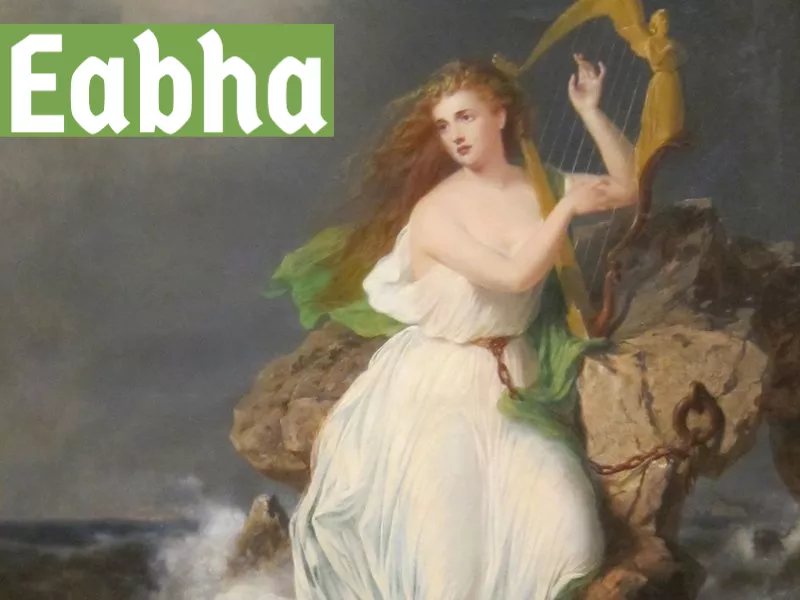
This Irish name means “life” and is another Irish form of the name “Eve.”
The anglicized spelling of the name is Ava — not to be confused with the Aoife spelling of Eva.
Rian (pronounced “ree-uhn”)
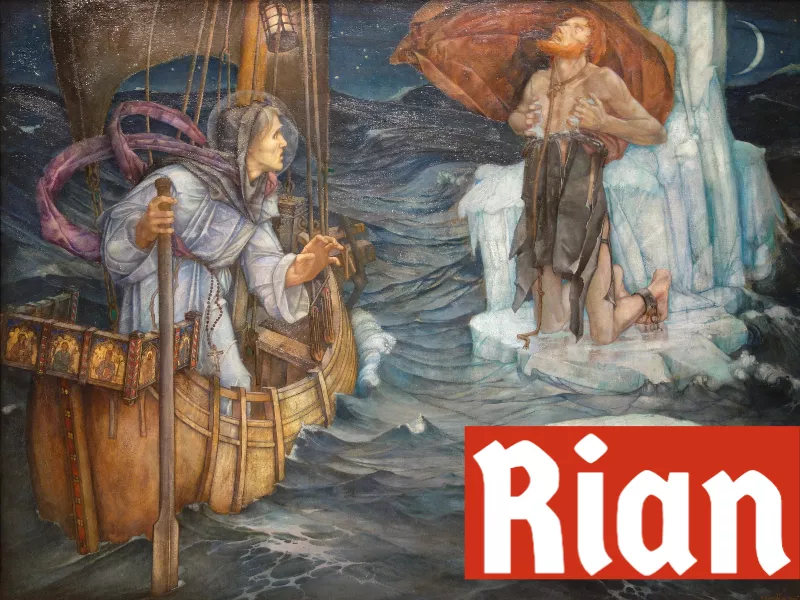
Another common-name-turned-cool is Rian, or “little king.”
It’s a variation of the name Ryan for boys; however, it’s also quite popular for girls, which has other female variations like Rhiannon and Rhiana.
Niamh (pronounced “neeve”)
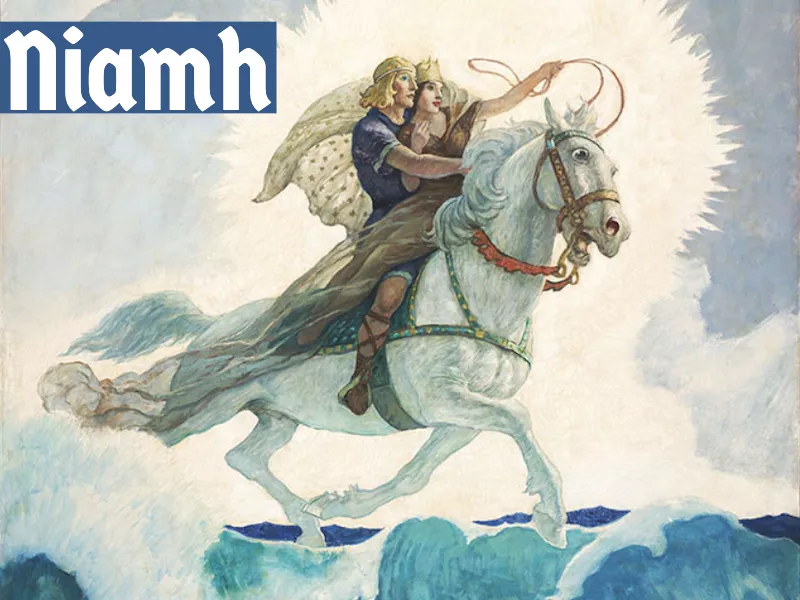
An ancient Irish name that’s always been popular in the U.K. (partly thanks to Niamh Cusack, a member of the acting dynasty that also includes Sinead, Sorcha and Padraig), Niamh, meaning “bright,” offers a choice of legendary associations. Niamh of the Golden Hair, daughter of a sea god, enticed a warrior’s son named Oisin to the land of eternal youth to marry her.
In the U.S., pronunciation problems are easily solved with the variation Neve (as in Canadian actress Neve Campbell, star of “Party of Five” and the “Scream” movie series). But the original Niamh is far more intriguing.
Brannon
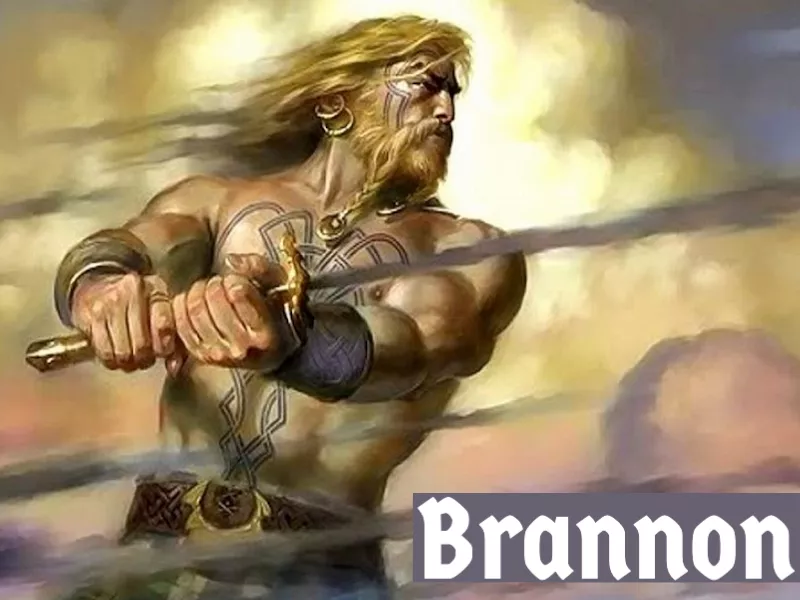
An alternative to the more anglicized Brandon or Brennan, Brannon is of Irish origin and means “descendant of the sad one.”
A popular nickname is Bran.
Brigid
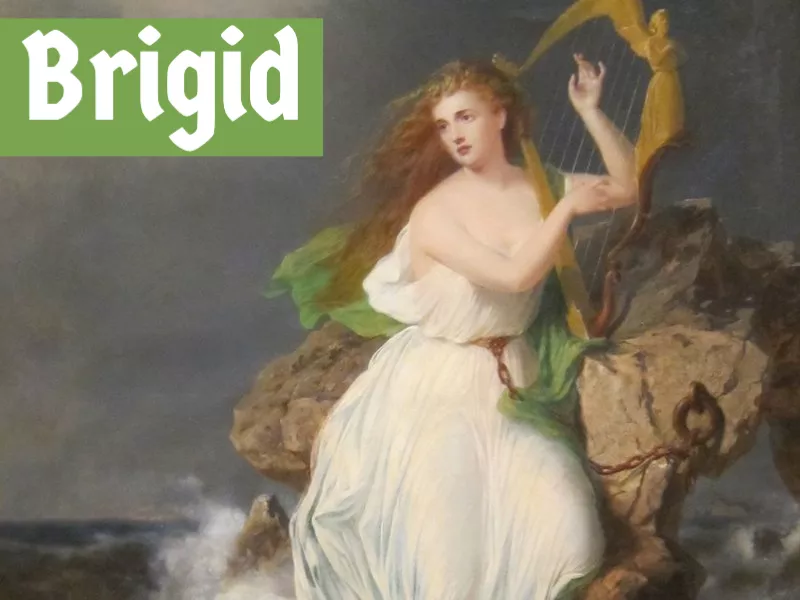
This Irish name means “strength or exalted one.”
In Irish myth, Brigid was believed to be a triple deity as the Celtic goddess of poetry, healing and agriculture. The country’s most famous saint was also Brigid, the patron saint of scholars.
Conan
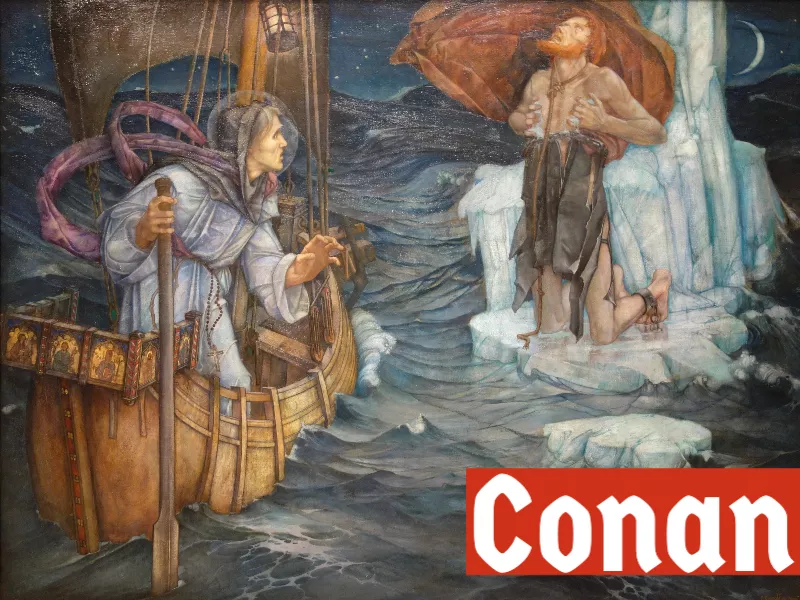
Of course, Irish late-night host Conan O’Brien has popularized this name of Celtic origin that means “little wolf.”
A seventh-century Irish saint, who was a bishop of the Isle of Man and an Irish missionary, also bore the name.
Dubheasa (pronounced “duv-eesa”)
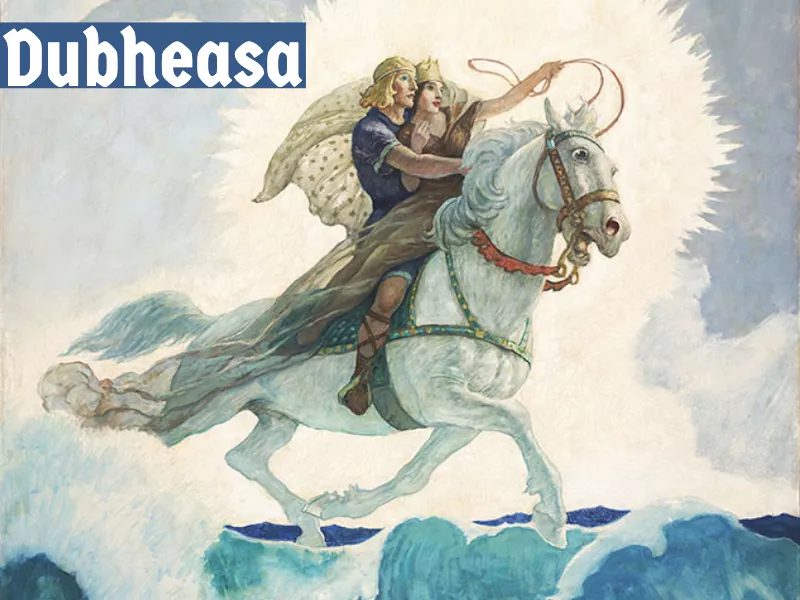
There’s little to say about Dubheasa, aside from the fact that it’s very, very old. Rarely used now, it was common in the 14th and 15th centuries in Ireland and has several spelling variations, including Dub Essa, from where it may have gotten its “dark beauty” meaning.
The Gaelic “dubh” means “dark” and “eas” means “waterfall, cascade, rapid.” You can’t get much more medieval than this. Other variations of the name include Dubhessa, Duibhessa and Duibheasa.
Cillian (pronounced “kill-ian”)
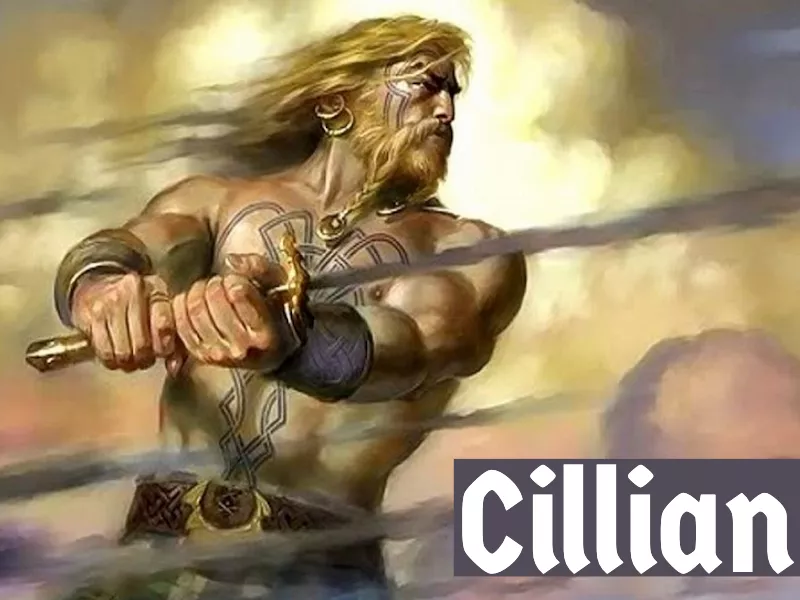
Long before Cillian Murphy was the award-winning star of “Peaky Blinders,” his name was that of a seventh century Irish Christian missionary in Europe. One of several Saint Cillians/Killians, this one was killed by a Duke after he admonished him for marrying his brother’s widow.
In the U.S., Killian is the more popular spelling; it was No. 286 in the baby boys’ name chart in 2018. Other variations include Chillian or Kilian.
Aine (pronounced “awn-ya”)
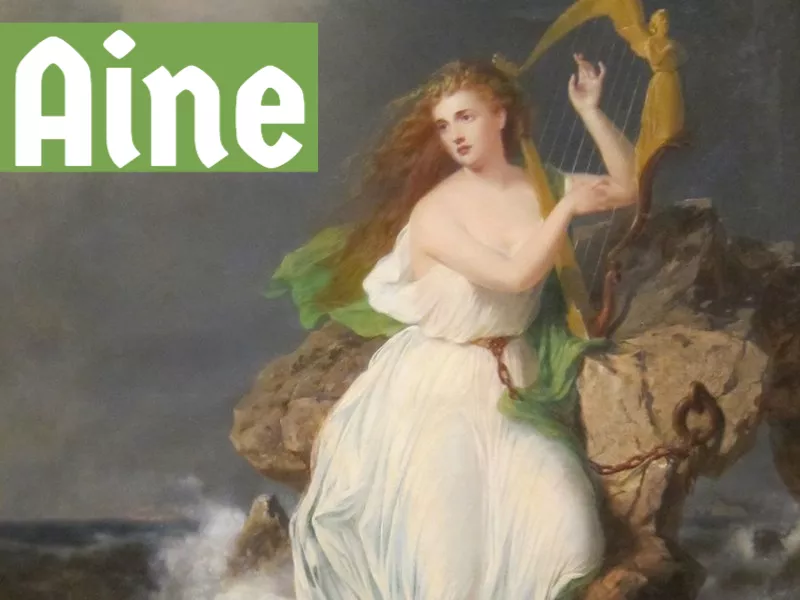
This popular Irish baby name means “brightness, splendor.” This quite traditional name originated in Irish folklore as an early Celtic goddess of summer and prosperity and belonged to the queen of the Munster fairies, who was one of the wives of Fionn MacCool.
It is often spelled Anya in other cultures.
Nevin
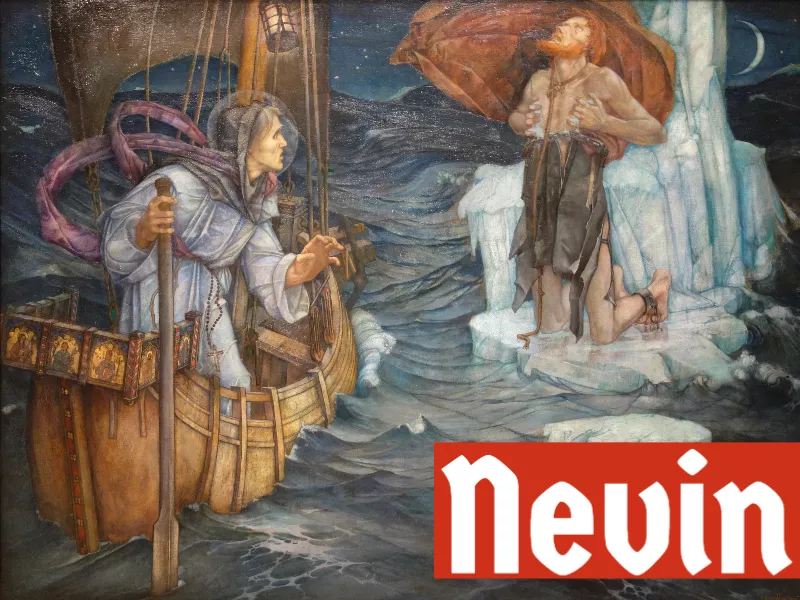
An Irish baby name that means “holy,” Nevin is a Gaelic alternative to the more anglicized Kevin or Devon.
An alternative spelling is Nevyn.
Saoirse (pronounced “seersha”)
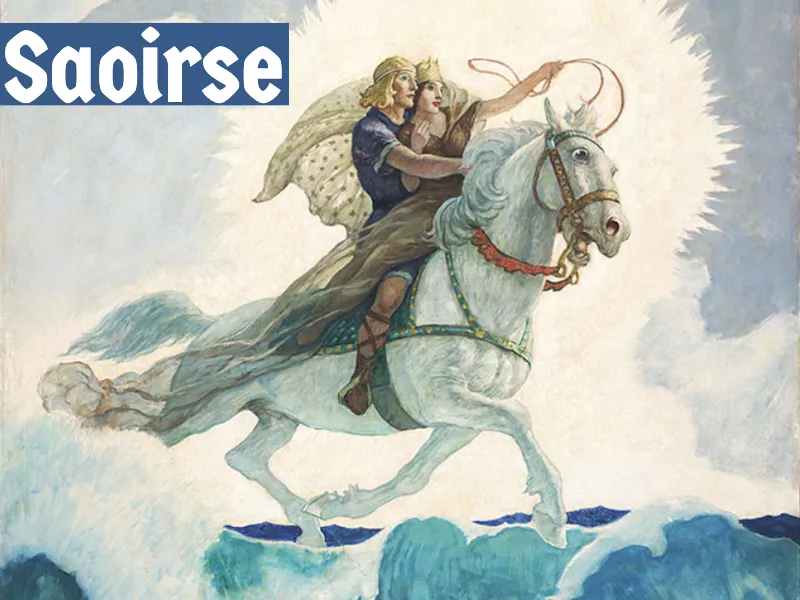
Thanks to actor Saoirse Ronan, the star of “Mary Queen of Scots,” “Ladybird” and “Brooklyn,” the name Saoirse has become slightly easier for everyone outside of Ireland to pronounce. Meaning “freedom” or “liberty,” it became popular in Ireland after the country became an independent state in the early 20th century. In the U.S., it first entered the top 1,000 chart in 2016 — in fact, it was the third-fastest-rising girls’ name.
A similar name is Sorcha, pronounced “surk-ha” and meaning “radiance.” Another variation is Sorsha, pronounced “sor-sha.”
Lugh (pronounced “loo”)
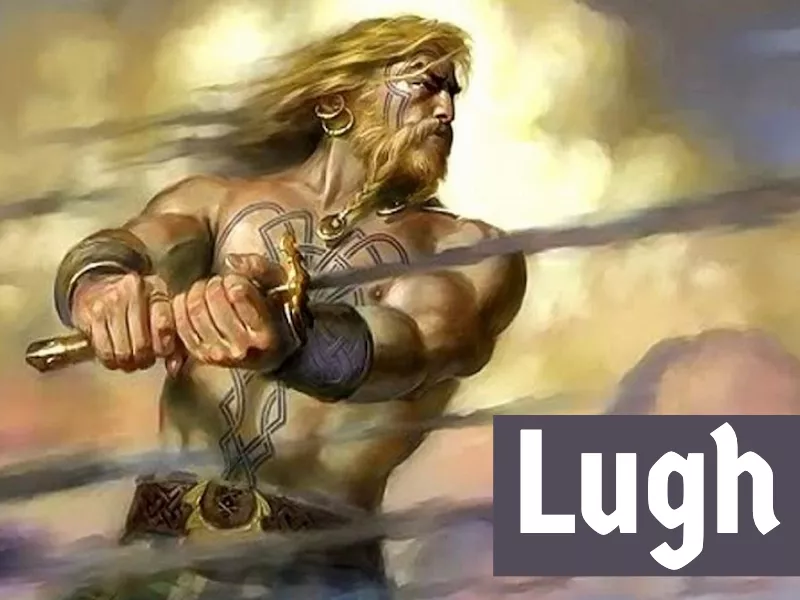
Proof that Irish names can be short and sweet is Lugh, after the Irish god of the harvest who had several magical tools at his disposal, such as a fiery spear and the “wave sweeper,” a boat that sails itself.
Some parts of Ireland still celebrate the feast of Lughnasadh, an Autumn harvest or fertility festival marked with bonfires and dancing. If it sounds familiar, you may have seen it in the movie “Dancing at Lughnasa,” featuring Meryl Streep.
Ailbhe (pronounced “al-va”)
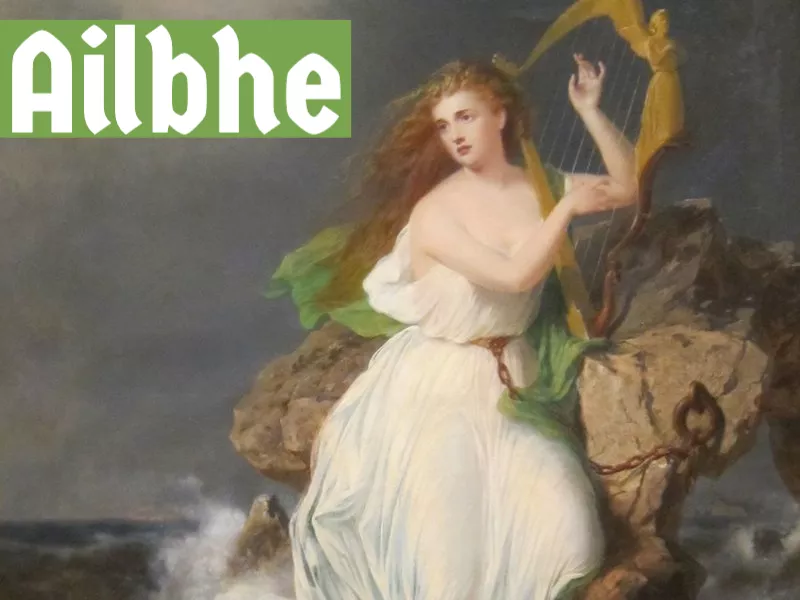
In Irish folklore, Ailbhe was a famous female warrior in the Fianna.
The name means “noble, bright” and is derived from the Gaelic root “albho,” which means “white.”
Conroy
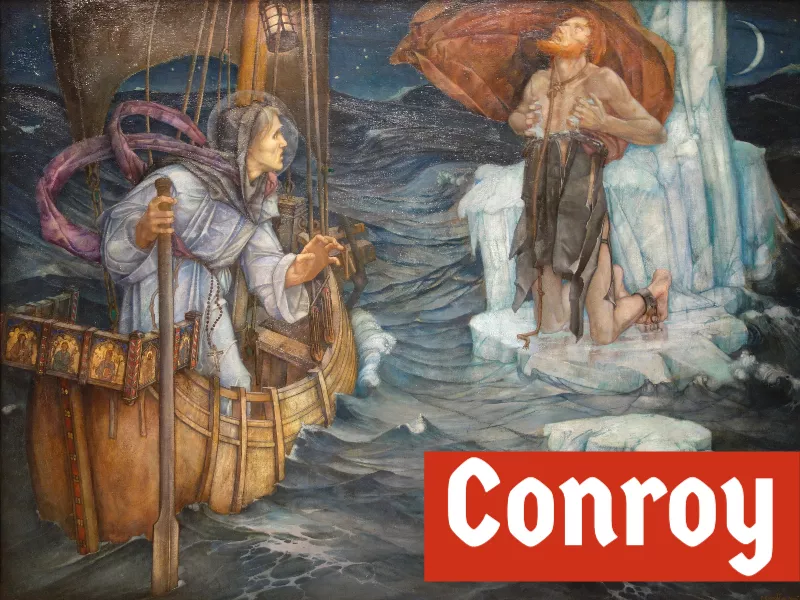
Often seen used as an Irish surname, Conroy means “hound (or wolf) of the plain.”
It’s a less common “Con” name that is always worth considering.
Muireann (pronounced “mwir-in”)
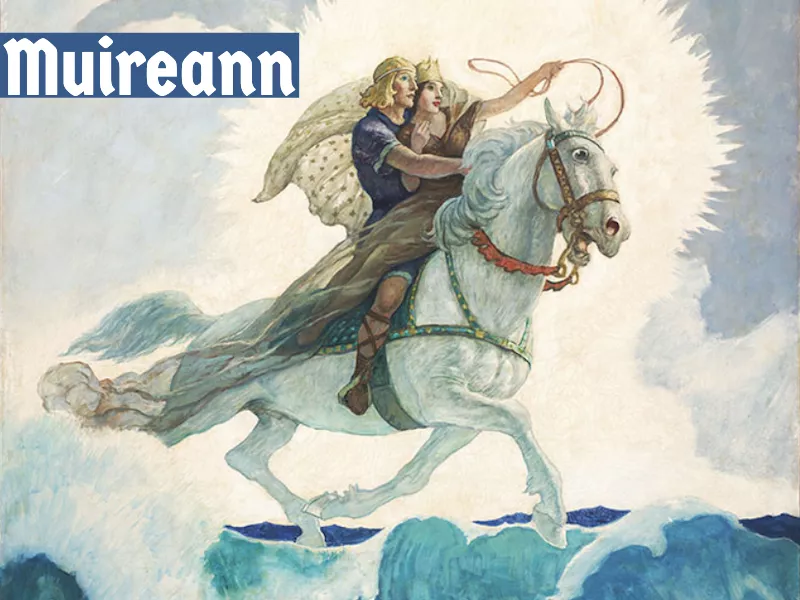
Muireann, which means “sea white,” “sea fair” or “long-haired,” is near-impossible to pronounce if you’re not Irish. (Check out Rob in season two of “Catastrophe” trying to say his newborn daughter’s name for all the evidence of this you need.) If you like a challenge, the best way to master it is to practice saying Mirren (as in the surname of actor Helen) but with a “w” sound after the initial “M.”
A popular Irish name with strong mythological associations, Muireann was a sixth-century mermaid who was caught by a fisherman in Loch Neagh and taken to St. Comghall, who baptized her and transformed her into a woman.
Cormac (pronounced “cor-mack”)
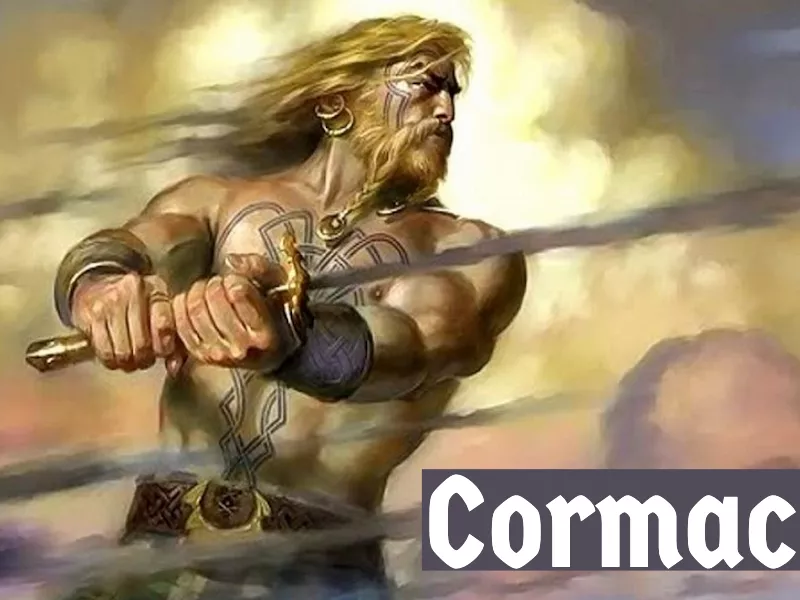
Cormac has yet to crack the U.S. top 1,000 — but that’s not a bad thing if you’re looking for an Irish boy’s name that’s scarce in the schoolyard. This traditional Irish name comes with plenty of connections to Celtic mythology, such as Cormac Mac Airt, one of the legendary high kings of Ireland.
More modern associations are award-winning author Cormac McCarthy and Gryffindor student Cormac McLaggen in two of the “Harry Potter” films.
Roisin (pronounced “ro-sheen”)
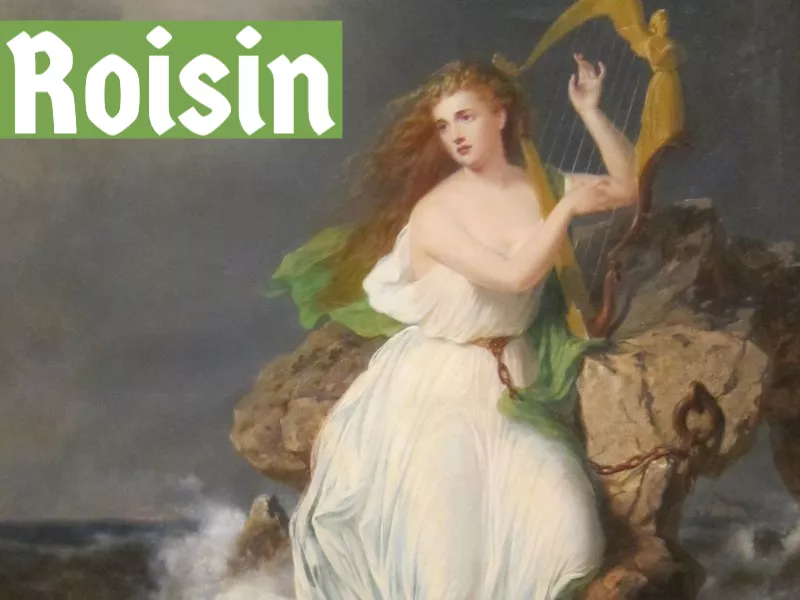
This name means “little rose” and is often associated with the 16th-century Irish song, “Roisin Dubh,” which translates to “Dark Rosaleen.” It was later turned into a poem by James Clarence Mangan whose heroine is thought to be a personification of Ireland itself.
Roisin is also the name of popular Irish singer-songwriter Roisin Marie Murphy. Singer Sinead O’Connor also has a daughter who bears the same name.
Tadhg (pronounced “tige”)
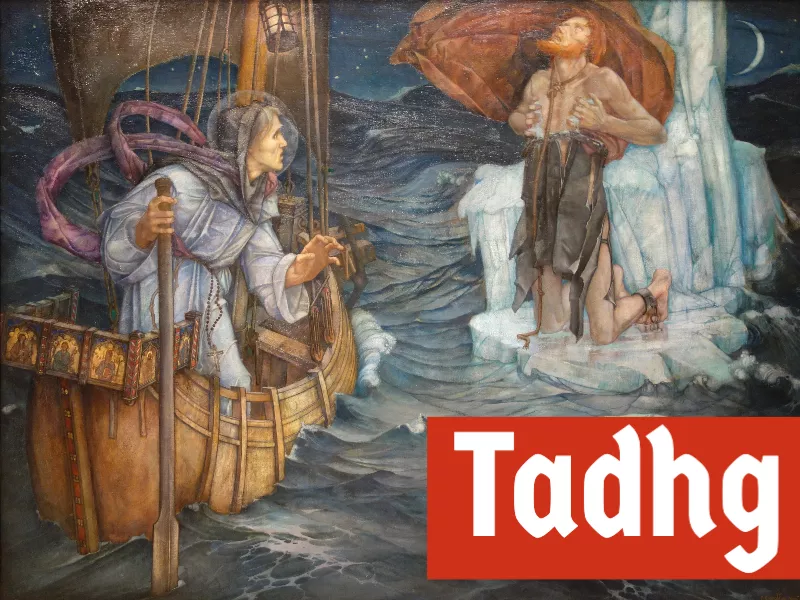
Of Irish origin, this name means “poet” or “bard.”
The 11th-century King of Connacht bore the name, and it became so popular that it was once as common as Paddy or Mick have since become. Thad is a popular, anglicized nickname.
Eilis (pronounced “isle-esh”)
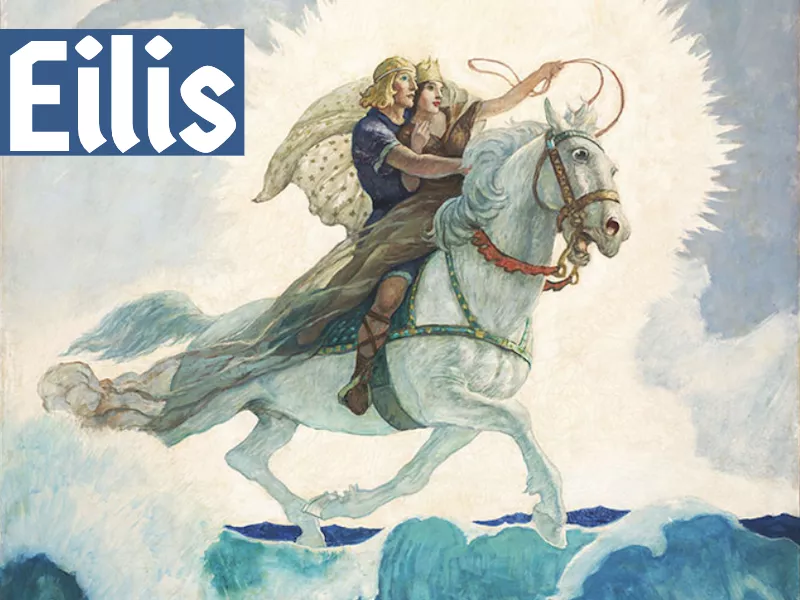
One theory behind the name Eilis is that it’s one of many Irish versions of the popular English name Elizabeth, but it more than stands alone on its own right. And thanks to the movie “Brooklyn” based on the Colm Toibin novel of the same name, the pronunciation is a cinch. It might not be evident from the spelling (clearly a common theme in Irish names), but it rhymes with “Irish.”
Eilis, which means “pledged to God,” was popular in medieval times and is still used in Ireland. If you want a more unusual alternative to the hugely popular Isla, this could be it. Other variations of the name include Eilish, Eillish and Eibhlis.
Oisin (pronounced “osheen”)
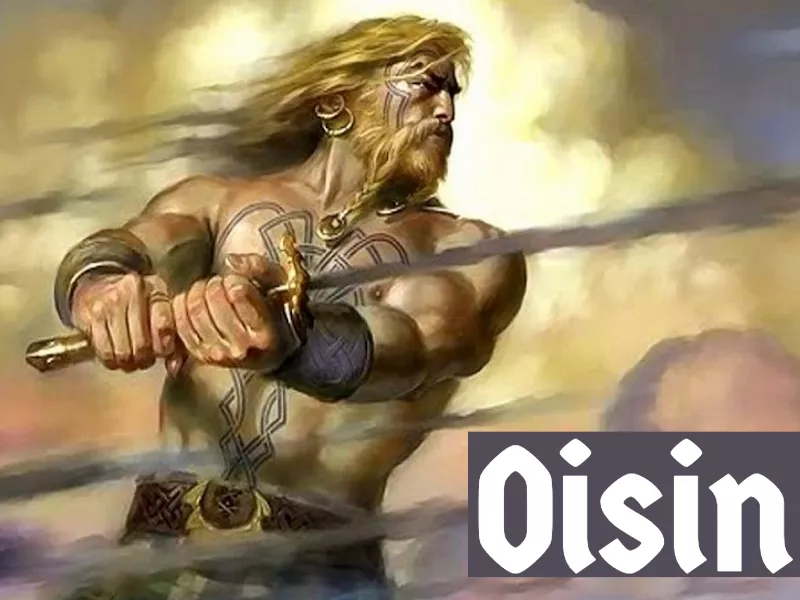
Meaning “fawn” or “young deer,” Oisin was the son of the aforementioned Fionn MacCumhail and the goddess Sadb.
A hero in his own right, Oisin is one of the most popular traditional names for Irish boys. Another version is Ossian, after the 18th-century poems of James Macpherson, which transformed Ossain into a Scottish hero. Other variations of the name are Osheen or Ossain.
Clodagh (pronounced “clo-dah”)
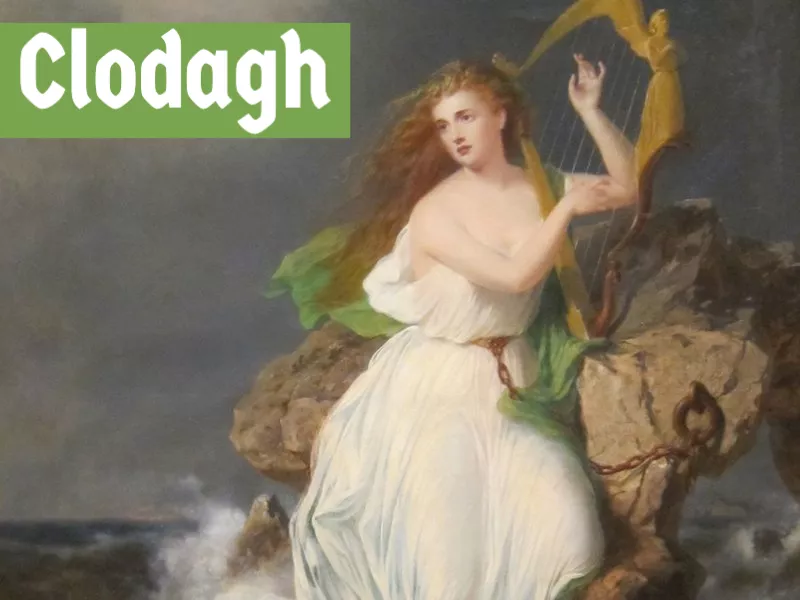
Lady Clodagh Anson is perhaps the most famous female Clodagh; however, she’s named after the River Clodagh that runs through the country’s County Waterford.
Born in 1879, Lady Clodagh was an aristocrat known for hoping raise money and awareness of the issue of homelessness.
Callum
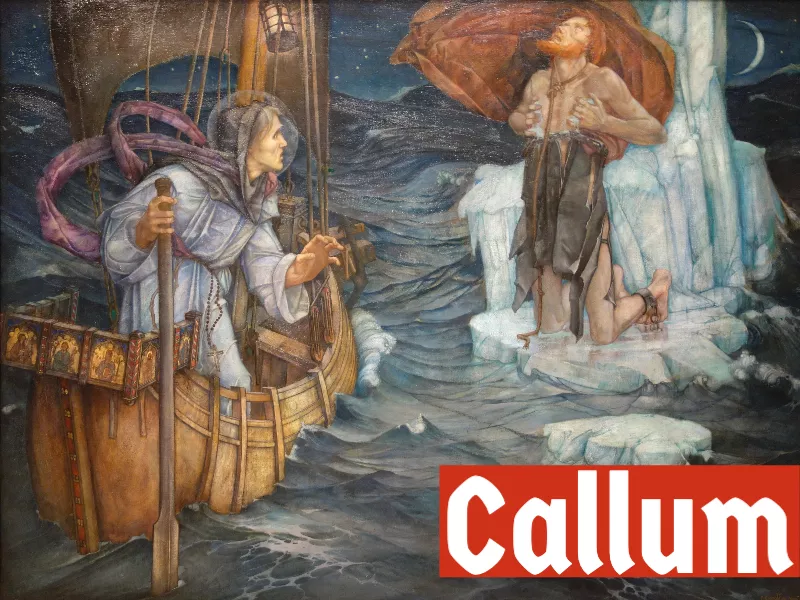
This is the Gaelic form of the Latin, “columba,” which means dove.
It would be perfect for a little peaceful babe.
Maebh (pronounced “mave”)
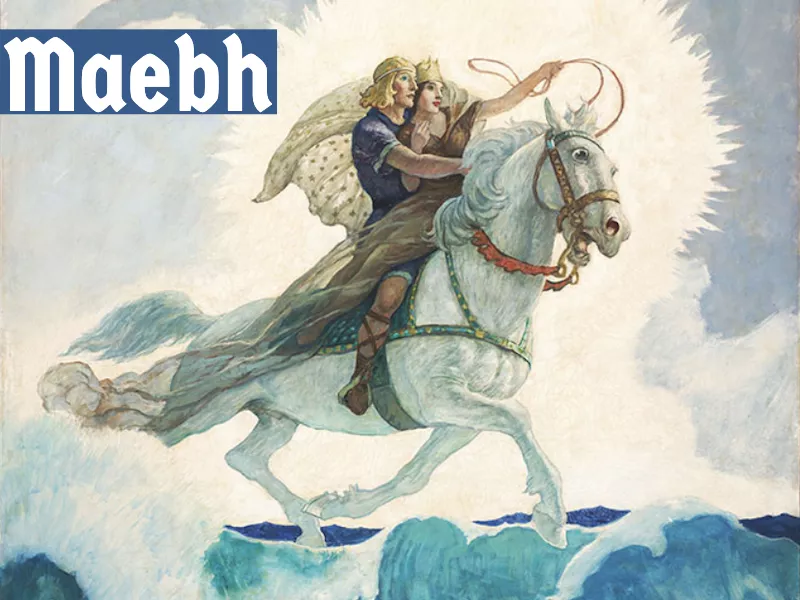
If you’ve paid attention, you’ll know that “bh” is pronounced like the letter “v” in Ireland (see Siobhan). Hopefully, that makes the pronunciation of Maebh a little easier to figure out. This ancient Irish name, meaning “bringer of great joy” or “enchanting one,” has legendary roots; she was the Queen of Connaught (the west of Ireland) who invaded Ulster (the north).
Elsewhere in Irish mythology, Maebh was queen of the fairies. Whatever legend you prefer (for a more modern reference, Maeve is the name of a lead character on “Westworld”), it’s a name with more substance than Mae or May, and has more contemporary flavor than Mavis. Other variations of the name include Medb, Meadhbh or Maeve.
Ronan (pronounced “roh-nan”)
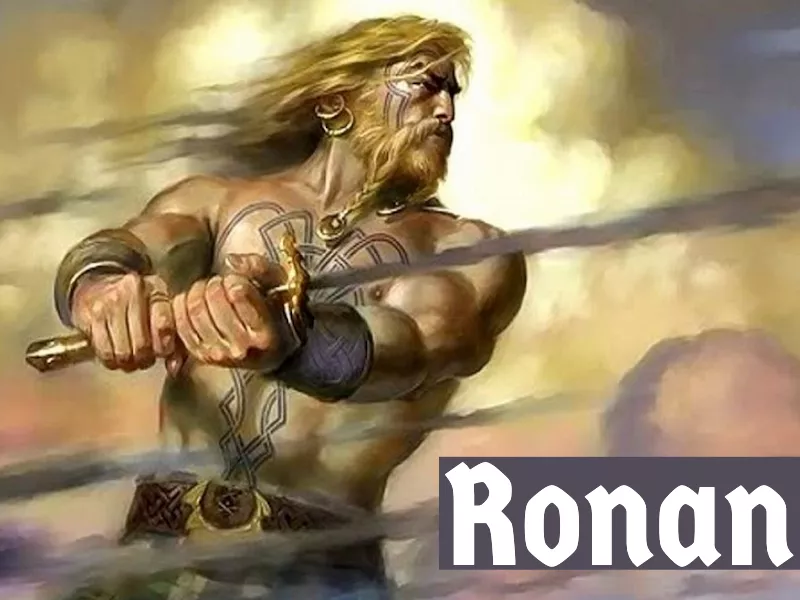
Considering its popularity with modern parents, the name Ronan is surprisingly old, going as far back as the sixth century to the saint of the same name. Another legendary Ronan was a king who was tricked by his second wife into killing his own son. In Ireland, it’s also a common surname, as in the aforementioned actress Saoirse Ronan.
Ronan is also a “Harry Potter” name — that of a centaur dwelling in the Forbidden Forest, who led the charge during the Battle of Hogwarts and likely witnessed the final battle between Lord Voldemort and Harry Potter.
Maira (pronounced “may-ra”)
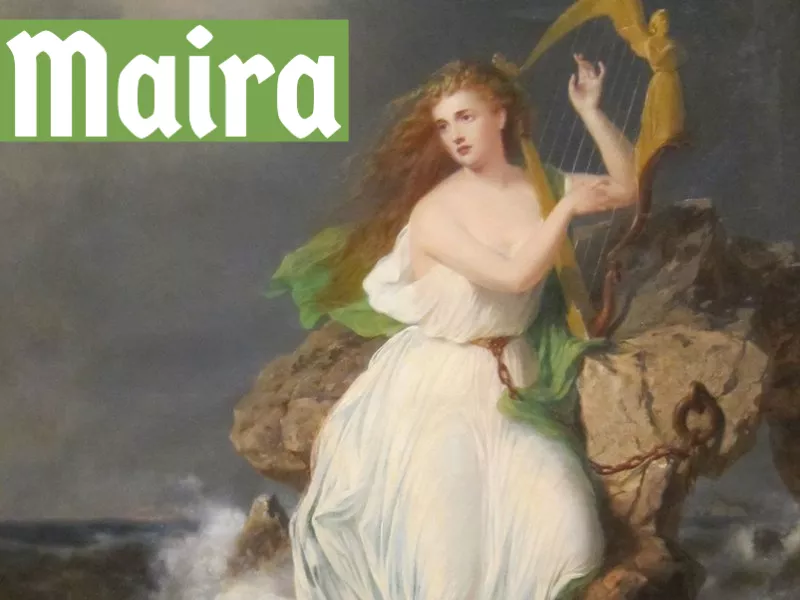
Maira is Irish version of the name, Mary, and means “bitter.”
Of course, the name Mary is a biblical name. In fact, there are six Marys in the Bible. Other derivatives of the name include Maire, Mamie, May, Maura, Marietta and Maria.
Kieran
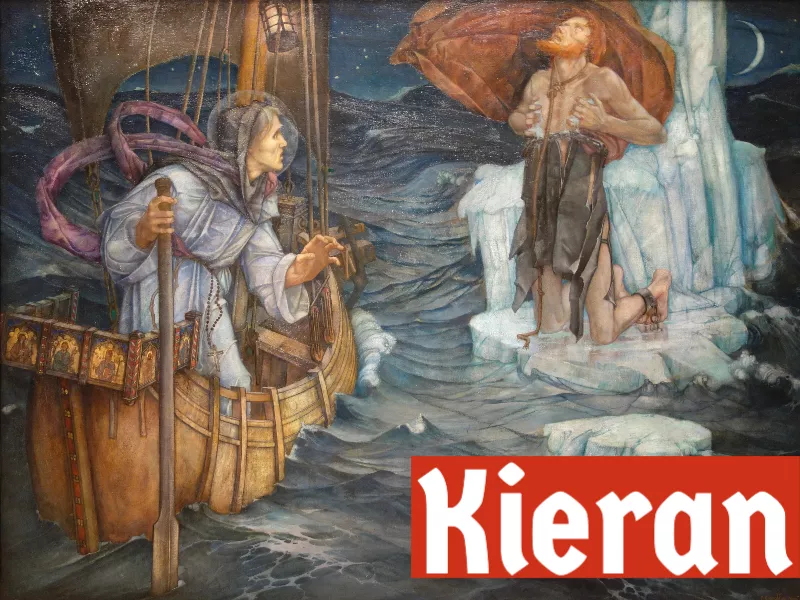
Actually a gender-neutral name, Kieran means “little dark one.”
Like several Irish names, it was the name of Ireland’s first-born saint as well as 25 other saints. Actor Kieran Culkin (of “Succession” fame) has certainly made this name more popular in recent years.
Etain (pronounced “eh-tane”)
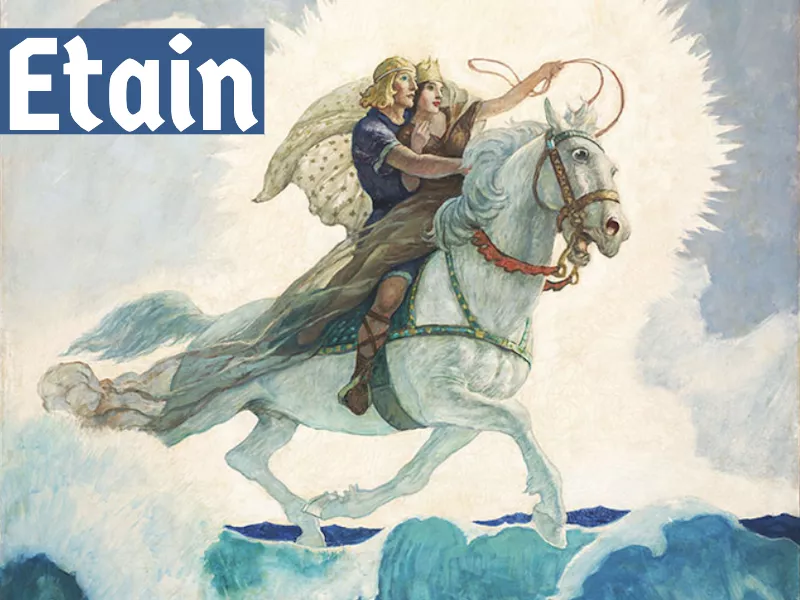
According to one Irish legend, Etain was a married woman who fell in love with the fairy man, Midir. In order to escape Etain’s husband, Midir cast a spell to turn them both into swans. The widely accepted meaning of Etain (“jealousy”) came from another legend, in which Etain was a beautiful fairy turned into a fly by a green-eyed queen. Etain then fell into a glass of milk and was swallowed by another queen, before being reborn as a beautiful maiden.
Etain is a girls’ name that has stood the test of time and remains one of the most popular modern names in Ireland.
Peadar (pronounced “pad-ur”)
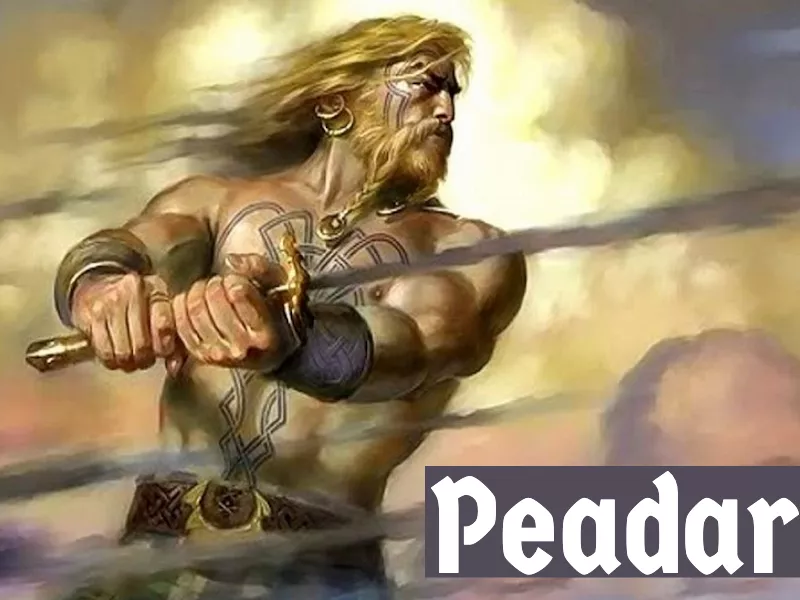
The boys’ name, Peter, is traditional, steady — it means “rock” — and remained in the U.S. top 200 until 2011; in 2018, it was No. 211. The Irish form, Peadar, is just as traditional in its home country, but is an exotic choice everywhere else.
One of the most famous Peadars in Ireland was Peadar O’Donnell, a socialist activist, politician and writer who became one of the nation’s most prolific 20th-century radicals.
Imogen (pronounced “ihm-eh-jen”)
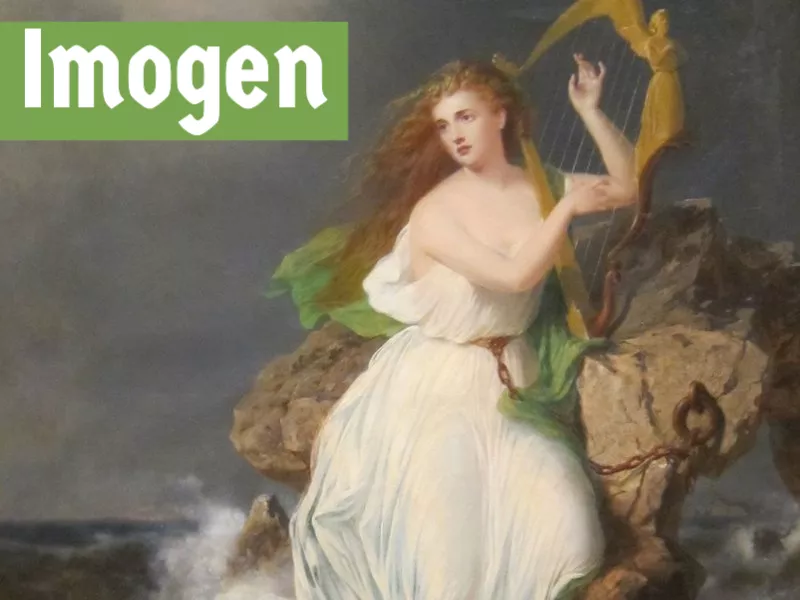
The legendary Imogen was the wife of Brutus of Troy, Britain’s first king. The name is of Celtic origin and means “maiden.”
In Shakespeare’s play, “Cymbeline” he based the character of the same name after her. Musician Imogen Heap also brought this name back into the spotlight.
Flanagan
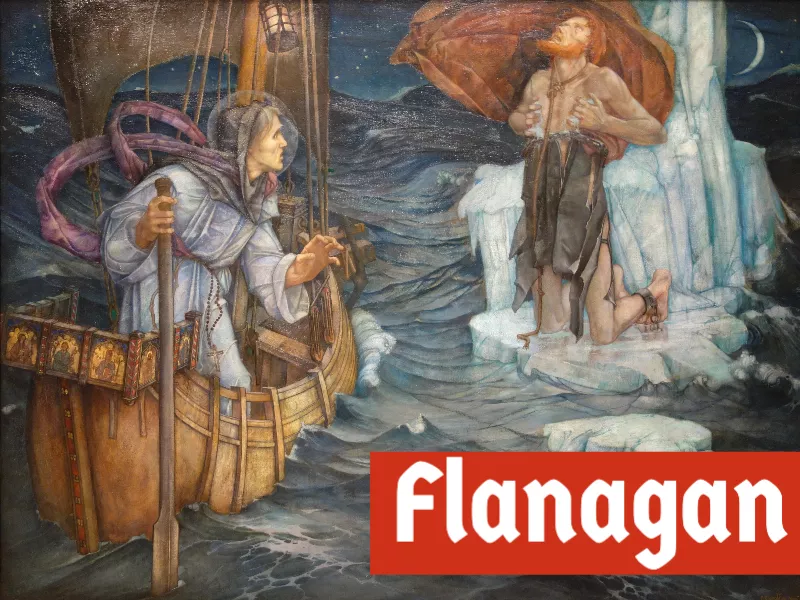
With an Irish meaning of “red, ruddy,” this is particularly perfect for a baby boy with red hair.
It’s seen as another variation of the more common Flann, Flynn or Finn.
Aisling (pronounced “ash-ling”)
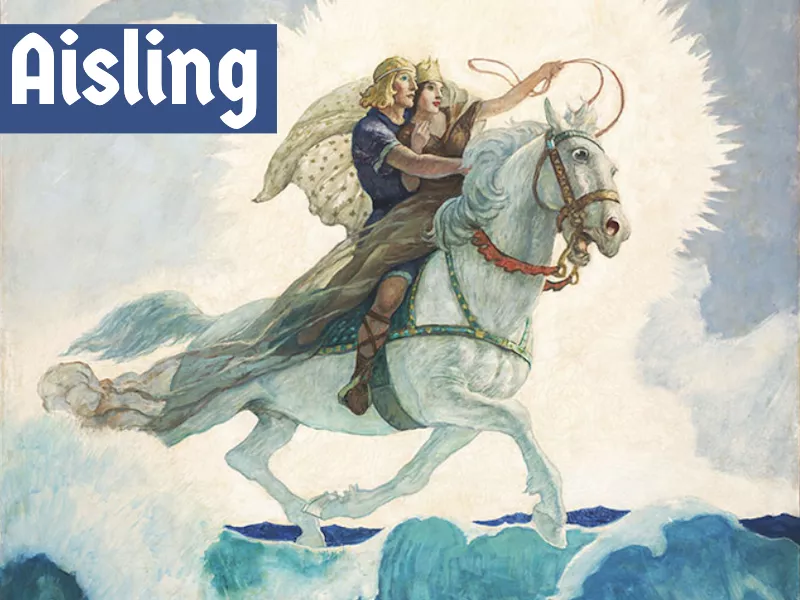
You’ll struggle to find a dreamier Irish name than Aisling. From the Gaelic “aislinge,” it means “vision” and is also a genre of Irish language poetry from the late 17th century. Since then, the aisling figure has been used as a metaphor for the spirit of the land and country of Ireland.
The most-famous, current-day Aisling is the Irish writer, comedian and actress Aisling Bea, who starred with Paul Rudd in the Netflix hit, “Living with Yourself.” And Lyanna Stark on “Game of Thrones” was played by the Irish-Italian actress Aisling Franciosi. Another variation of the name is Aislinn.
Brian
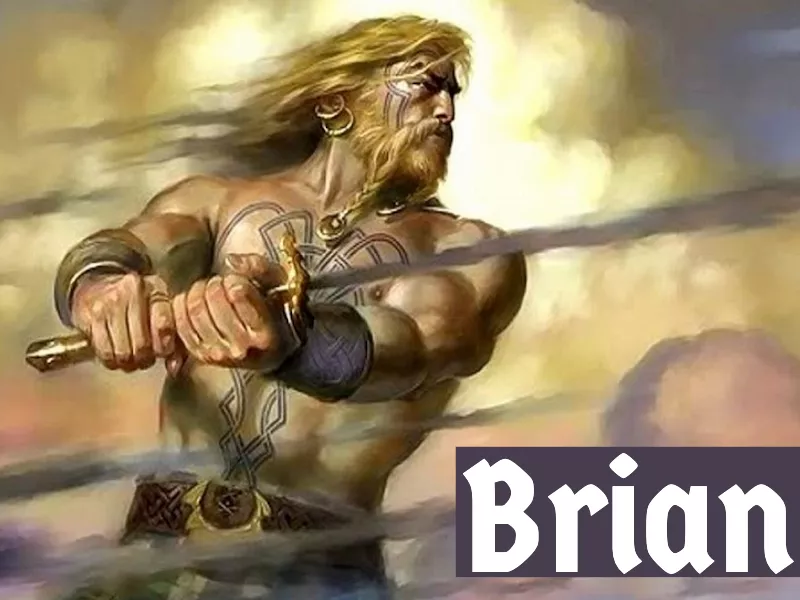
Meaning “courageous, strong and noble,” Brian is from the Gaelic ‘brigh.” It’s popularity in Ireland is mainly down to Brian Boru, who thwarted Viking efforts to conquer the country in the 11th century. After an initial surge, Brian fell out of favor for a few-hundred years, but came back fighting in the 20th century. (It’s Marilyn Manson’s real name, FYI.)
Other variations of this common name include Bryon, Bryan or Brion.
Aileen (pronounced “eye-leen or “ay-leen”)
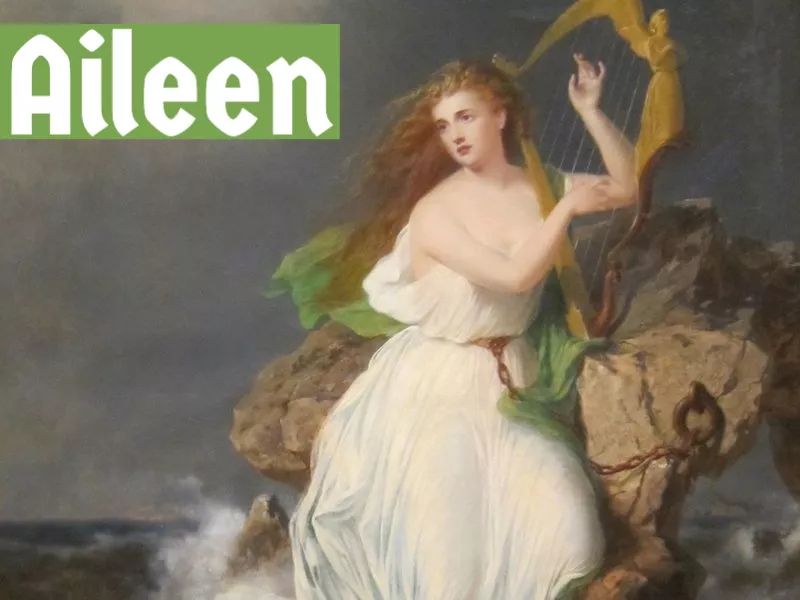
This name means bright, shining light, and is considered an Irish variation of Helen.
Popular nicknames include Isla, Ayla, Lee and Lena.
Kerrigan
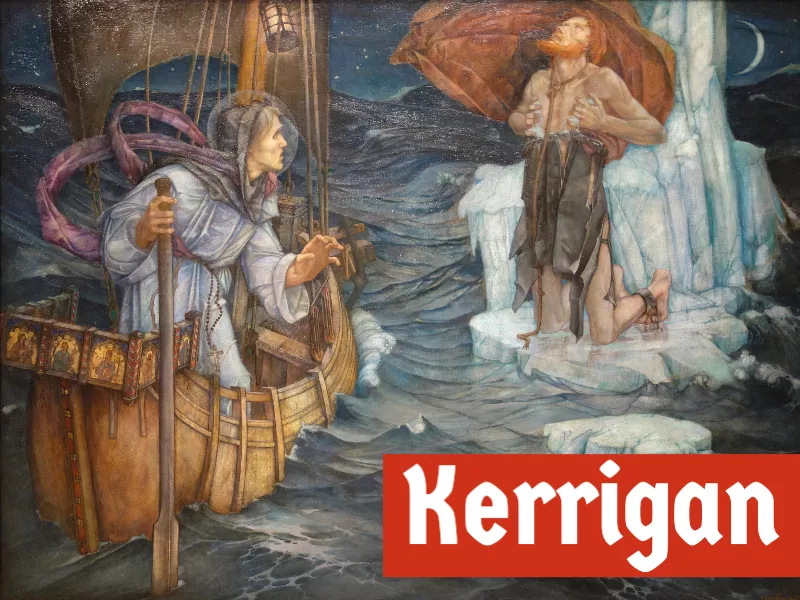
A popular surname that means “dark, dark-haired,” Kerrigan is a unique name that follows the trend of using a last name as a first name.
This is another name that works for both genders and has a popular nickname: Kerry.
Aoibheann (prono “ay-veen”)
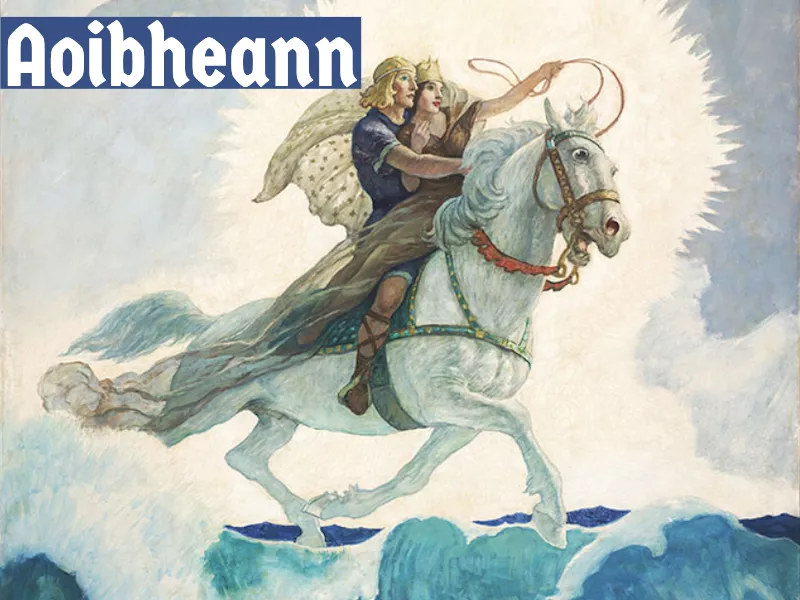
If the name Eve is too popular (or too short), Aoibheann is another way to get that “v” sound. Officially, it means “of pleasant, beautiful sheen” or “radiant beauty,” but it’s often translated as “little Eve (Aoibh).”
One Aoibheann was the mother of St. Enda of Aran who established the first Irish monastery at Killeaney on Aran Mor and died in 530 AD. So yes, this name goes way back. Another variation is Eavan.
Cian (pronounced “kee-an” or “keen”)
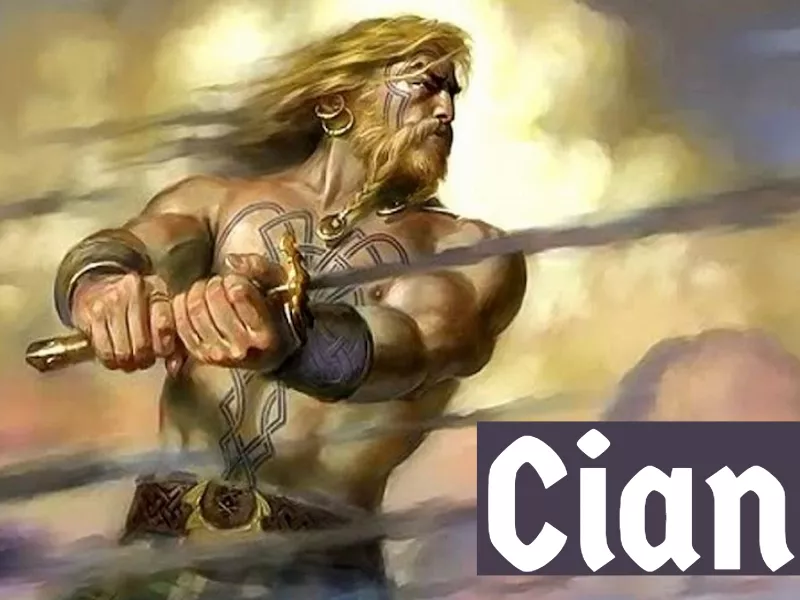
With a choice of two pronunciations, Cian is a versatile name with a solid meaning: “ancient or wise.” It’s also another one steeped in history. Cian helped the aforementioned Brian Boru, High King of Ireland (who was also his father-in-law), defeat the Vikings at the Battle of Clontarf.
Other legendary Cians include the son of the god of medicine, whose own son was Lugh, the sun god and father of the Ulster warrior Cuchulain. In other words, it’s a pretty well-connected name. Another spelling variation is Kian.
Callen (pronounced “cal-en”)
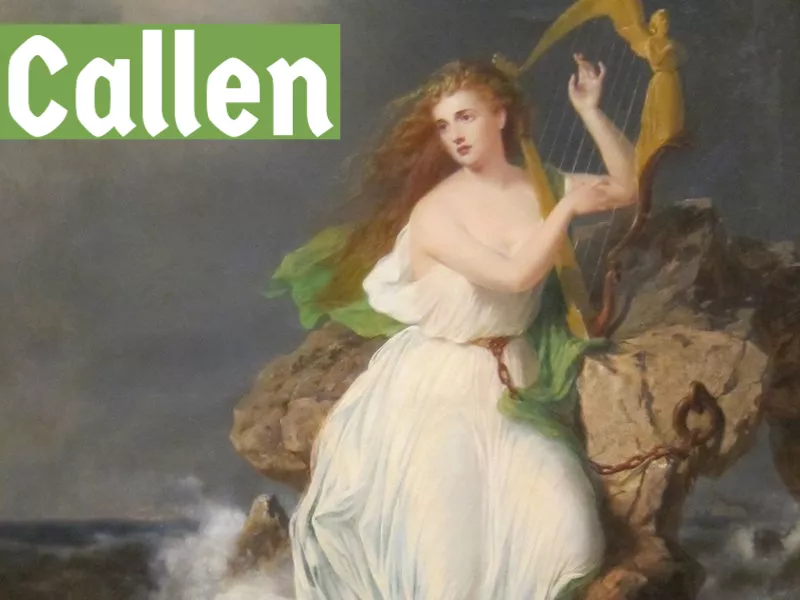
This Gaelic name means “rock” and is considered a unisex name.
It’s particularly popular among girls; however, Chris O’Donnell’s character on “NCIS: Los Angeles” is likely bringing it back for boys, too.
Noland
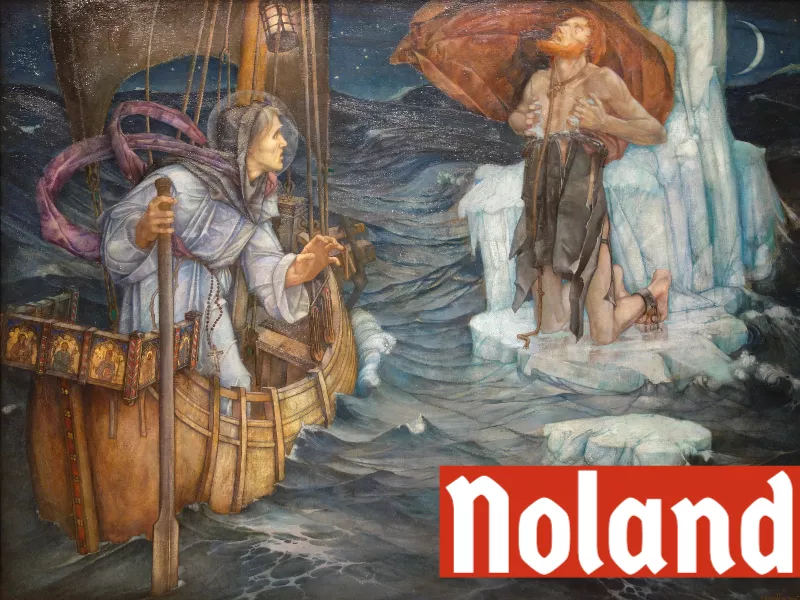
This name is surely a winner. After all, it means “champion” in Irish. See what we did there?
Of course, the more-common Nolan is another possibility.
Blathnaid (pronounced “blaw-nid”)
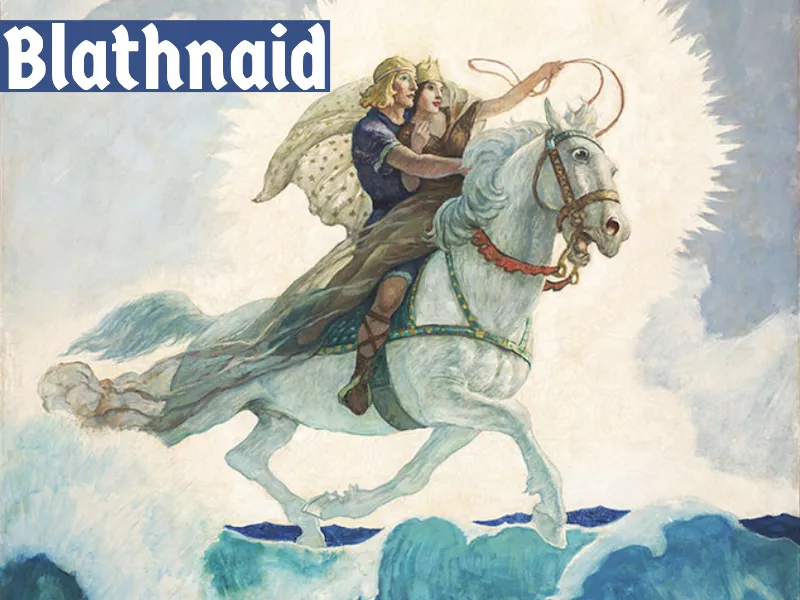
Blathnaid doesn’t only have a sweet floral connection. Yes, it is the Irish version of Florence, derived from the Latin Florentia, which means “blooming” or “blossoming,” and in Irish, “blath” means flower or blossom. But this name also comes with a legend.
After the young maiden Blathnaid was abducted and married to Curai Mac Daire, she revealed the secret entrance to his fortress to his rival, Cuchulainn, by milking her cow and letting the milk run down the hill into a stream. Cuchulainn followed the stream, raided the fortress, killed Curai Mac Daire and rescued Blathnaid. Sadly, it didn’t end well for the lovers — Cuchulainn was killed by one of Curai Mac Daire’s servants — but it’s a pretty awesome rescue story.
Other variations of the name include Blathnat and Blanid.
Daithi (pronounced “da-hee”)
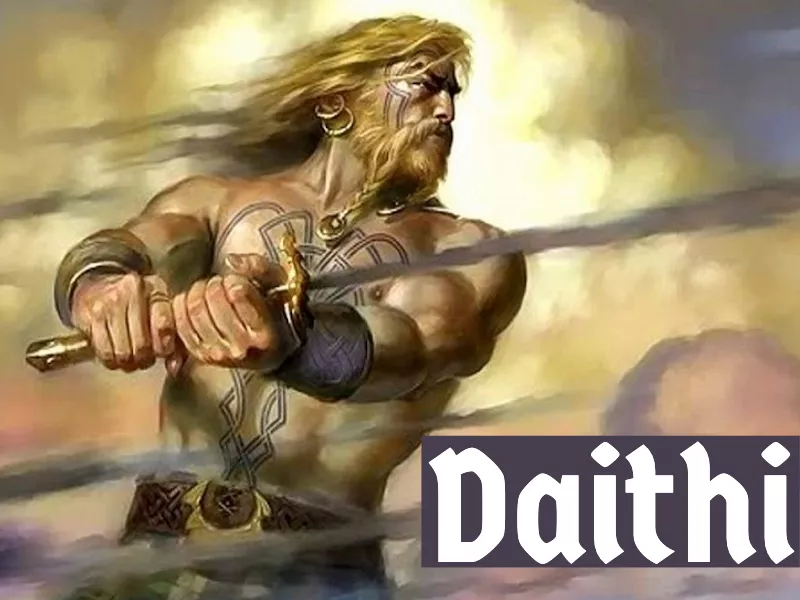
An old Irish name that means “swiftness,” “nimbleness” or “beloved,” Daithi was the last Pagan king of Ireland who ruled from 405-426 AD and was apparently killed by a bolt of lightning as he led an army to the foot of the Alps. Before he died, he managed to father 24 sons — clearly, he was a busy man.
Dathi is another variation of this name.
Maiti (pronounced “may-tee”)
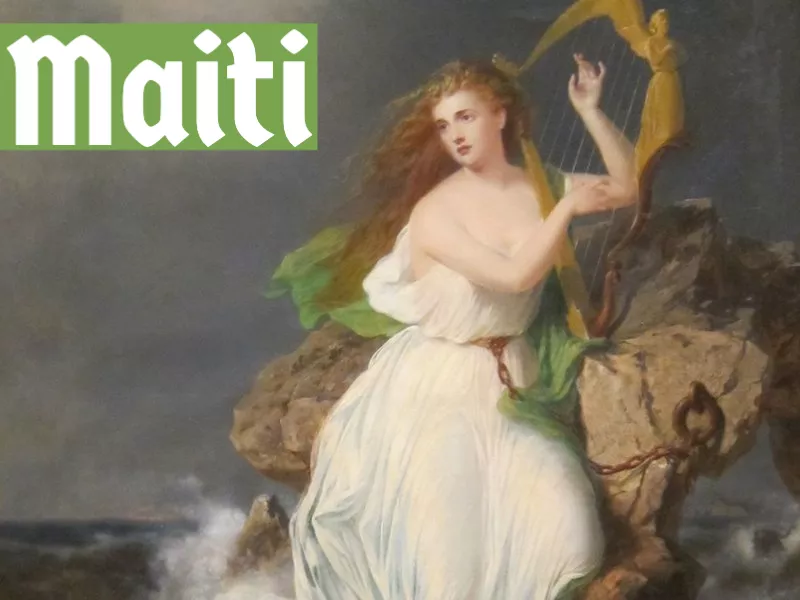
This is a strong name for girls, with a meaning of “strong battle maiden.”
It’s often seen as a variation of Matilda and Maitilda, with a popular nickname of “Tille.”
Quinn
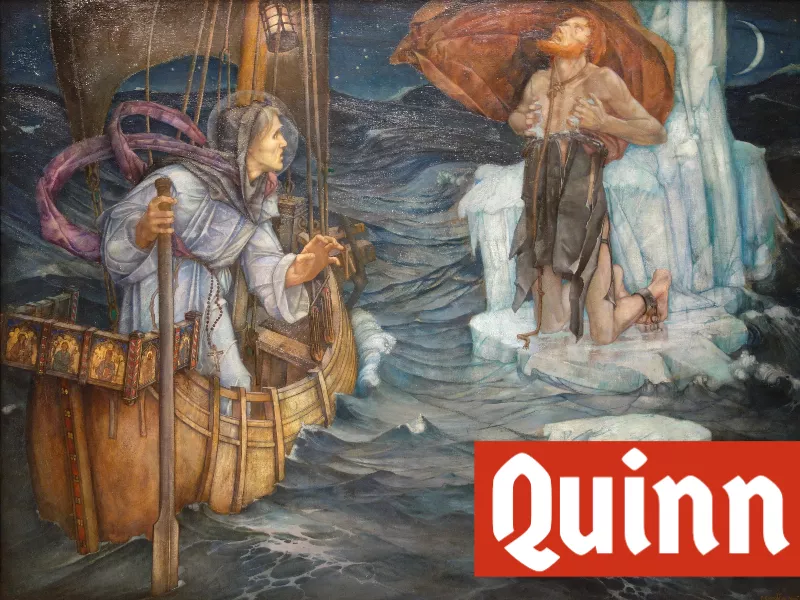
Both genders have seen this name grown in popularity. With a meaning of “chief leader, intelligence,” it’s easy to see why.
Other boyish name variations include Quinton, Quincy and Finn.
Caitlin (pronounced “kat-leen”)
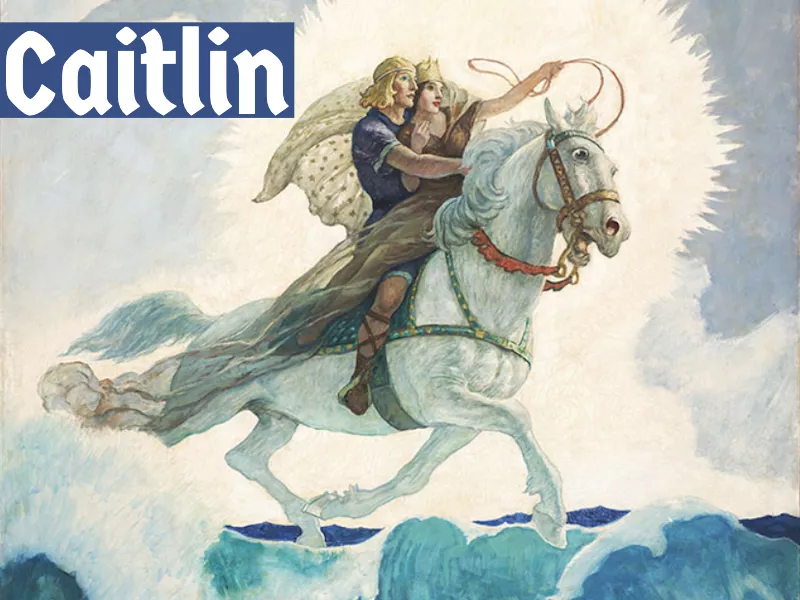
Caitlin is Irish through-and-through, but it has global connections. It’s a version of the old French name Cateline, which itself comes from Catherine, which is attributed to St. Catherine of Alexandria, a Christian saint and virgin who was martyred in the early fourth century.
Caitlin is also a form of Cathleen, a more direct Irish form of Catherine, which was chosen by W.B. Yeats for the heroine of his 1899 play, “The Countess Cathleen.” This name can be spelled a variety of ways, including Katelynn, Kaitlynn, Kaitlyn, Caitlyn and CaitLyn.
Dara
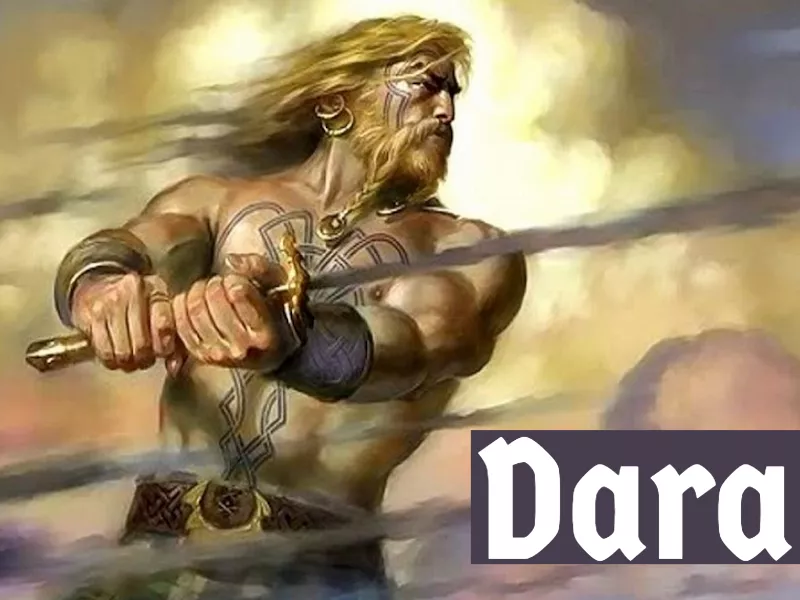
Another Irish name with unisex appeal (while it’s considered primarily a girls’ name in the U.S., it’s more popular for boys in Ireland), Dara is derived from “daire” and means “fruitful” or “fertile.” According to legend, Daire mac Fiachna, who owned the Brown Bull of Cooley, refused to sell the bull to Queen Maebh, which was thought to be the trigger for the battle between Ulster and Connacht.
Fun fact: In Iran, Dara and Sara are the Islamic Ken and Barbie. Other variations include Daire and Darragh.
Cara
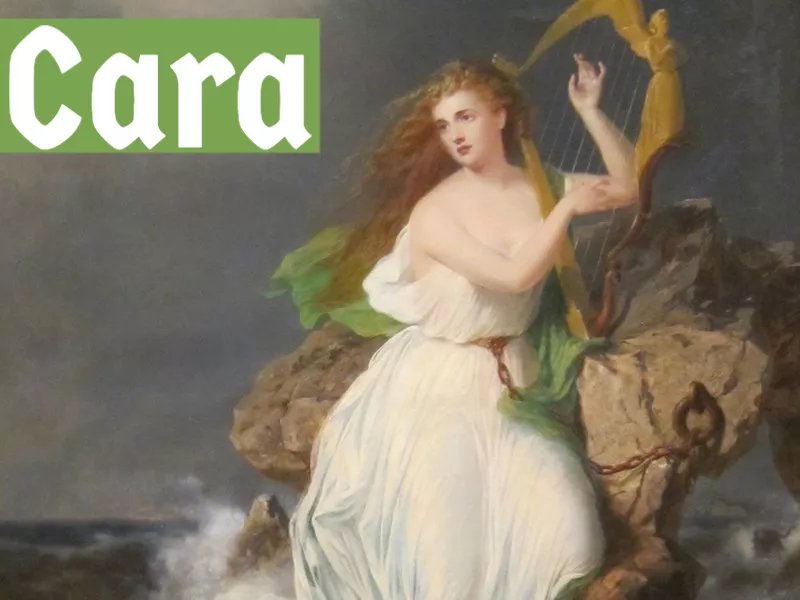
This name is sweet and simple, and in Irish, it means “a friend.”
Beckett
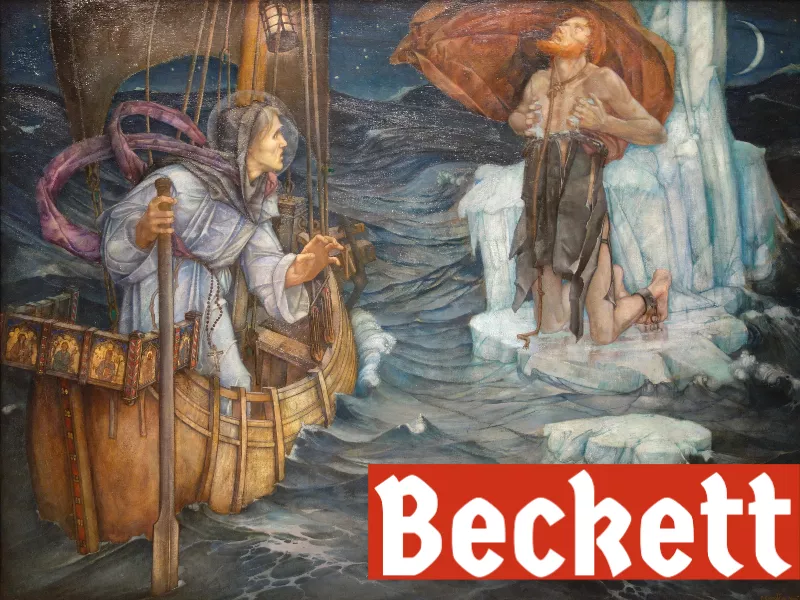
Of English and Irish origin, this name means “bee hive, little brook or bee cottage” — a perfect nature-themed name.
The fun nickname, Beck, also makes this a worthwhile choice.
Deirdre (pronounced “deer-drah”)
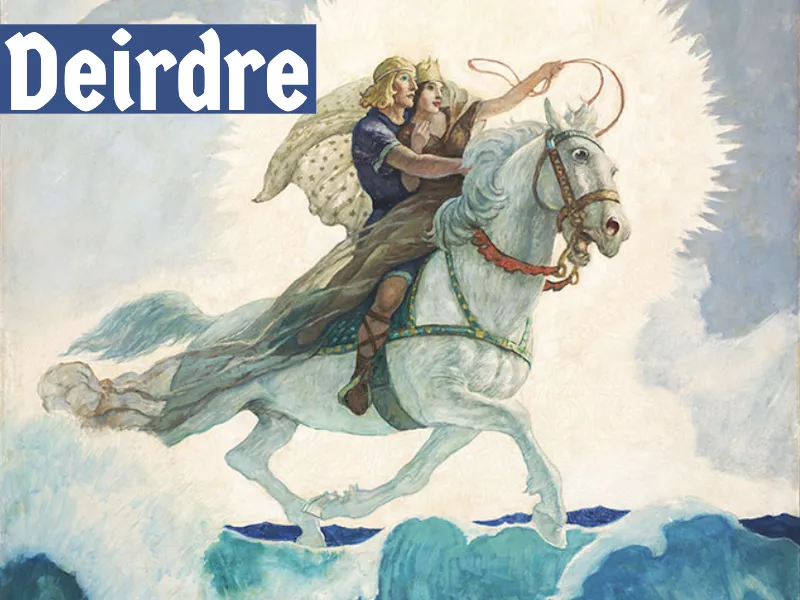
According to Irish legend, Deirdre died by suicide or heartbreak (depending on what version you prefer) after Conchobhar, the king of Ulster, forced her to be his bride and killed her lover Naoise. As one of the great tragic figures of Celtic mythology, Deirdre’s tale has been adapted for many plays over the years, from W. B. Yeats’ “Deirdre” in 1907 to Vincent Woods’ “A Cry from Heaven” in 2005.
It’s undoubtedly a melancholic move to name your daughter after “Deirdre of the Sorrows,” but she was considered to be the most beautiful woman in Ireland, so there’s that. Other spellings include Deidre or Deidra.
Deaglán (pronounced “deck-lin”)
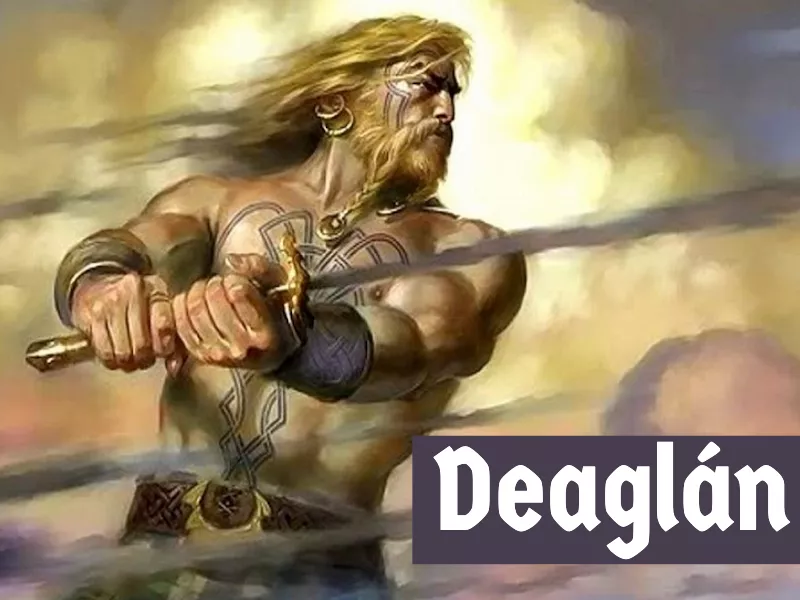
One of the first missionaries to introduce the Irish to Christianity, St. Deaglán founded a monastery in Ardmore, County Waterford. Unsurprisingly, the meaning attached to Deaglán is “man of prayer.”
Declan, the anglicized form of the name, also has musical connections: It’s the real first name of singer Elvis Costello. The name made its debut on the U.S. chart in 1998 and has climbed steadily ever since, reaching an all-time high of No. 101 in 2018.
Lana
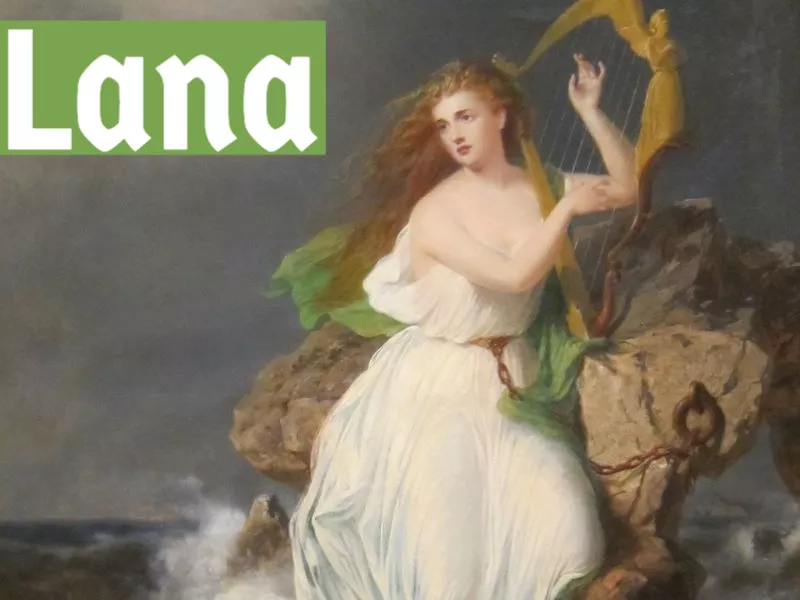
This Irish name is a feminine variation of the name Alan and means handsome, cheerful.”
It’s also a diminutive of Alana. Other popular variations include Alaina and Alanis.
Sean
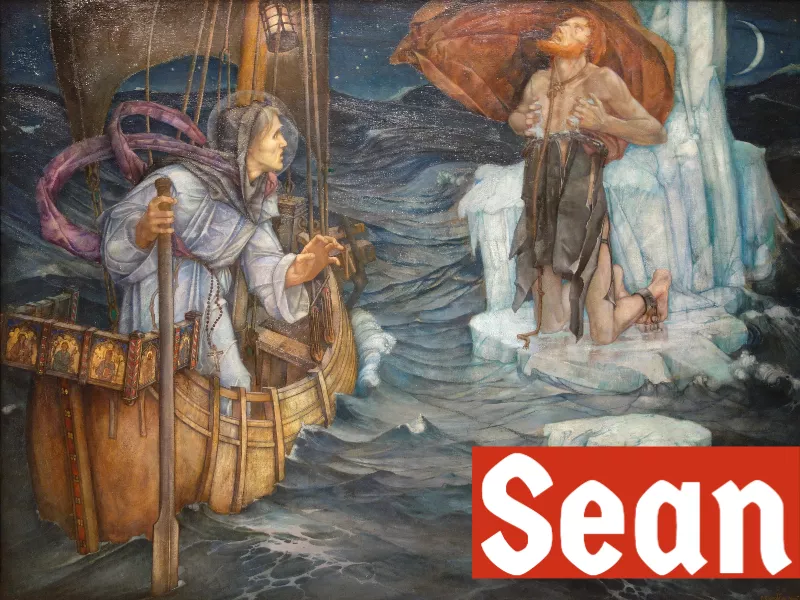
It doesn’t get much more classic Irish than Sean, a variation of John.
Of course, the name, Senan, is a unique variation as well.
Eimear (pronounced “ee-mur”)
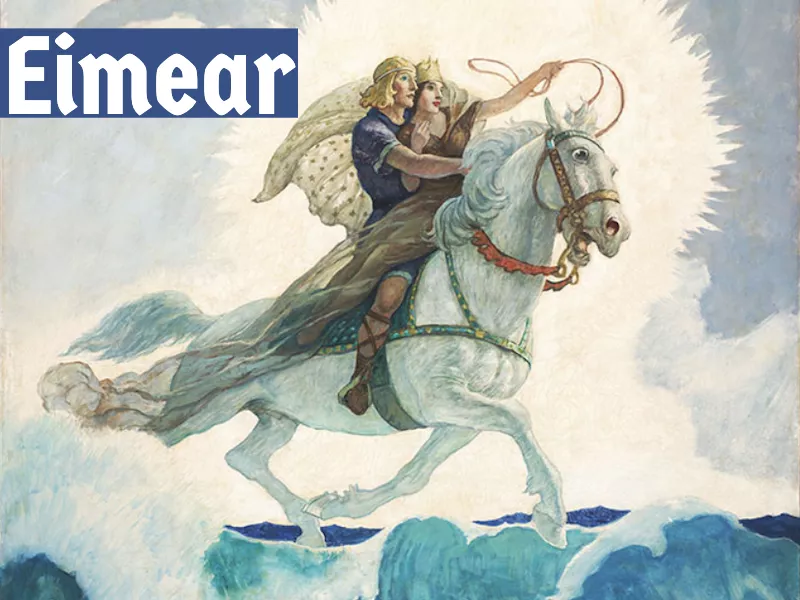
Meaning “swift,” Eimear is another legendary Irish name. She was the wife of warrior legend Cuchulainn, and was said to have possessed the six gifts of womanhood, which are beauty, a gentle voice, sweet words, wisdom, chastity and, um, needlework (in no particular order). Hopefully, modern parents will have quite different hopes and expectations when it comes to their daughter’s qualities, but it’s always good to have a certain amount of wisdom, right?
One of the most famous bearers of the name is Eimear McBride, who won the inaugural Goldsmiths Prize in 2013 and the Baileys Women’s Prize for fiction in 2014 for her debut novel, “A Girl is a Half-formed Thing.” Another variation of the name is Emer.
Feargal (pronounced “ferr-gal”)
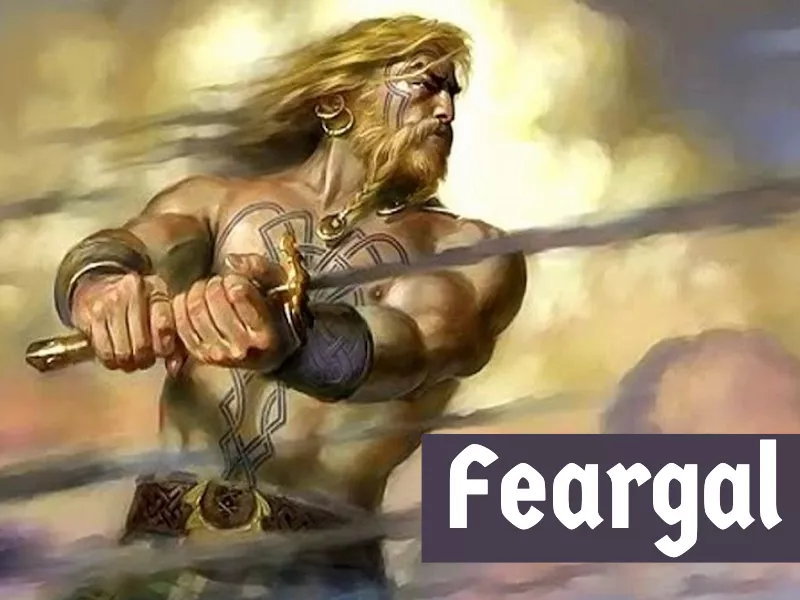
Fearghal, meaning “brave, courageous and valorous,” has been common in Ireland for centuries. It was the name of an eighth-century high king and also St. Feargal of Virgil (Latin “Virgilius”), who was born in Ireland in the eighth century but left on a pilgrimage to France and ended up in Salzburg, where he was appointed bishop.
Fergus is a more well-known name in the U.S., but Fergal entered the pop culture scene via the hit TV series, “Catastrophe,” starring Sharon Horgan and Rob Delaney. Other spellings of the name include Fearghal and Ferghil.
Dacey
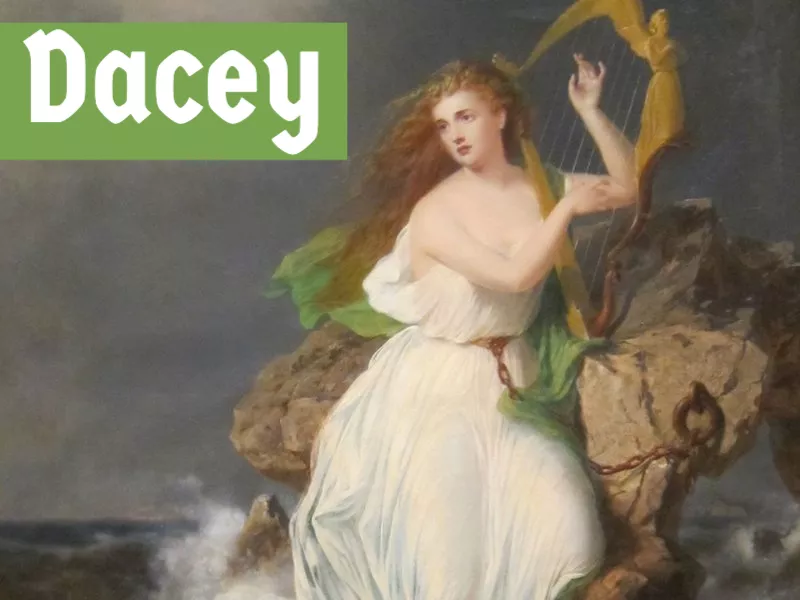
While this name rhymes with the more anglicized Casey or Lacy, it’s every bit Irish.
It means “from the south” and is a unique alternative to the trendier names.
Conor
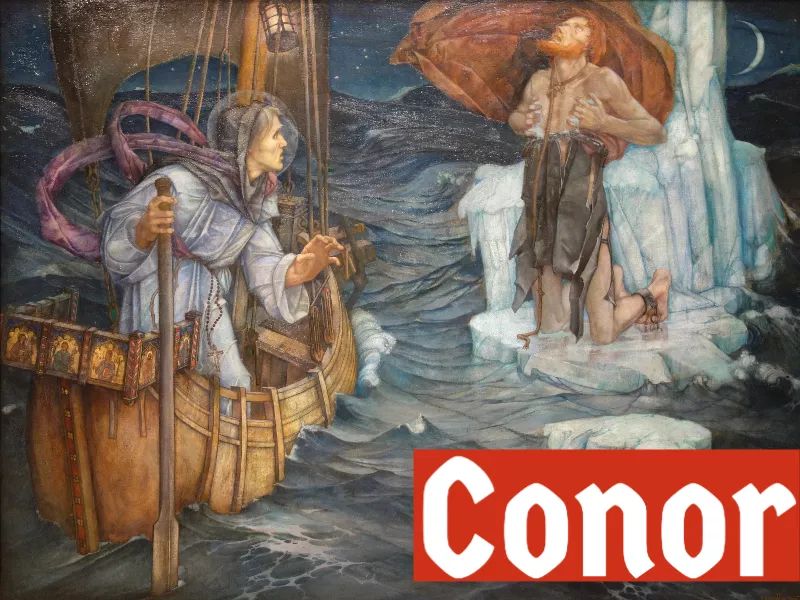
Conor, or Connor, is very similar to Sean in popularity, especially in Ireland.
It means “lover of hounds” and was the name of the king of Ulster in Irish mythology.
Kiara (pronounced “kee-ar-ah”)
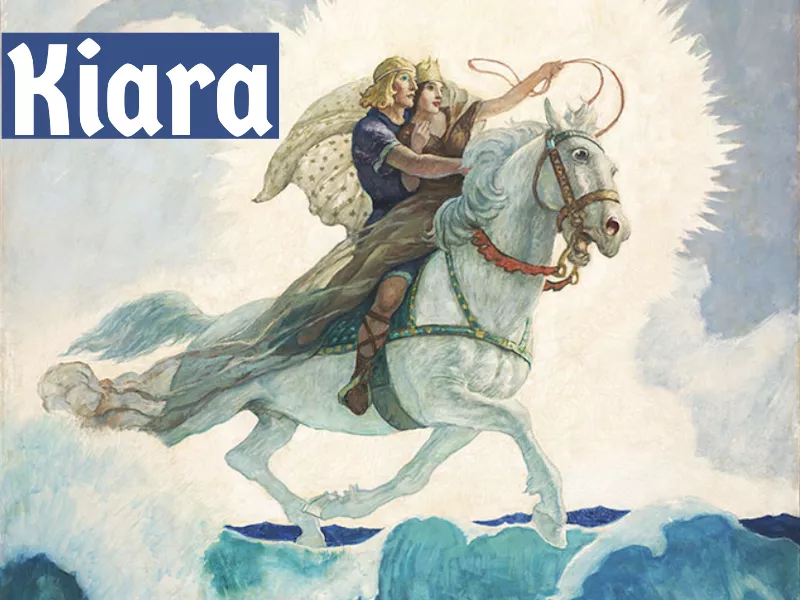
If you want an Irish name with a range of meanings, Kiara almost has a different one for every day of the week: “little,” “dark one,” “first ray of sun,” “cockatoo,” and “light, clear.”
This melodic moniker may have Celtic roots, but it sits nicely with more contemporary choices, like Keira (as in Knightley) and Kaia (as in supermodel). Plus, of course, it’s the name of Simba’s daughter in “The Lion King.” Other variations include Clara or Chiara.
Padraig (pronounced “porr-rick”)
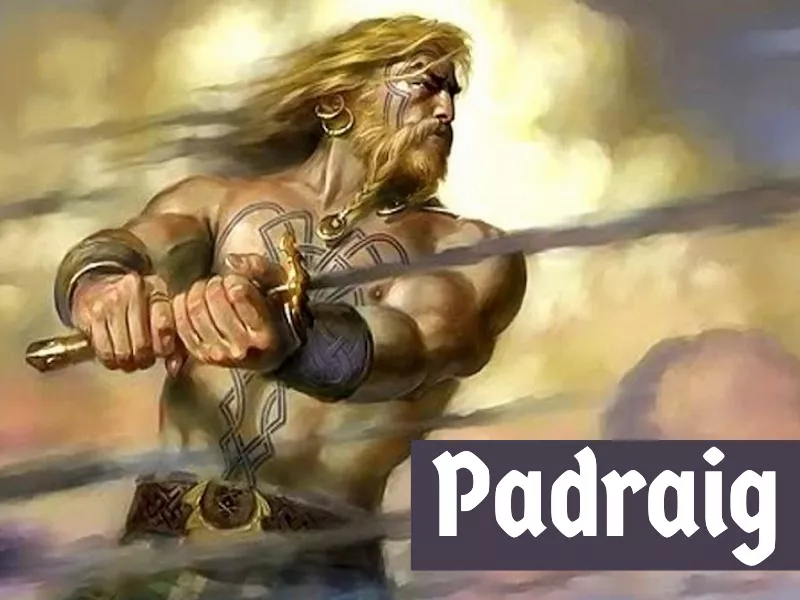
Meaning “patrician, noble,” Padraig is something of a variation of Patrick, which isn’t actually of Irish origin itself (it’s a Latin name). Padraig has all the potential to confuse both in spelling and pronunciation, but the golf champion Padraig Harrington has helped bring it into the mainstream.
Of course, Patrick is the primary patron saint of Ireland, along with saints Brigit of Kildare and Columba, with his very own day, which is generally devoted to drinking Guinness. Padraic or Paraic are other variations of the name.
Ciara (pronounced “keer-a”)
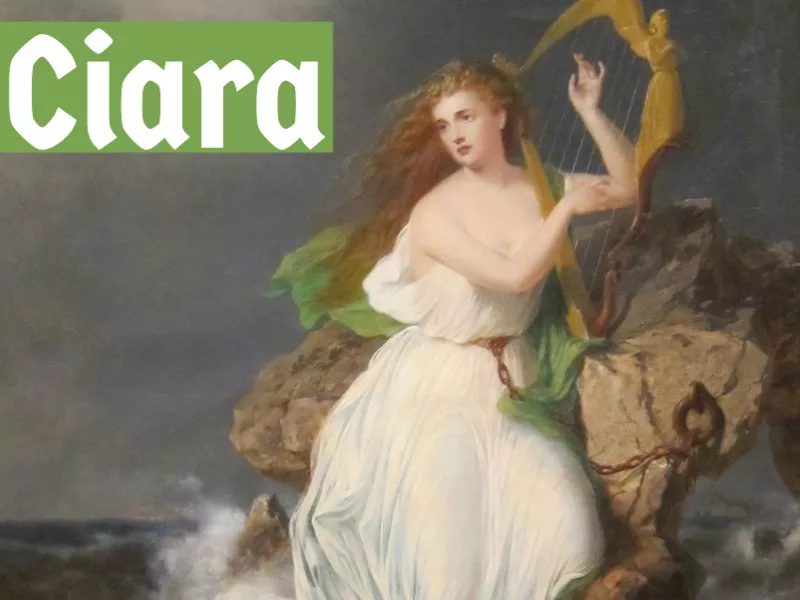
Not to be confused with Kiara, Ciara means “little dark one.”
The more common spelling, Keira, is popular thanks to actress Keira Knightley.
Keegan
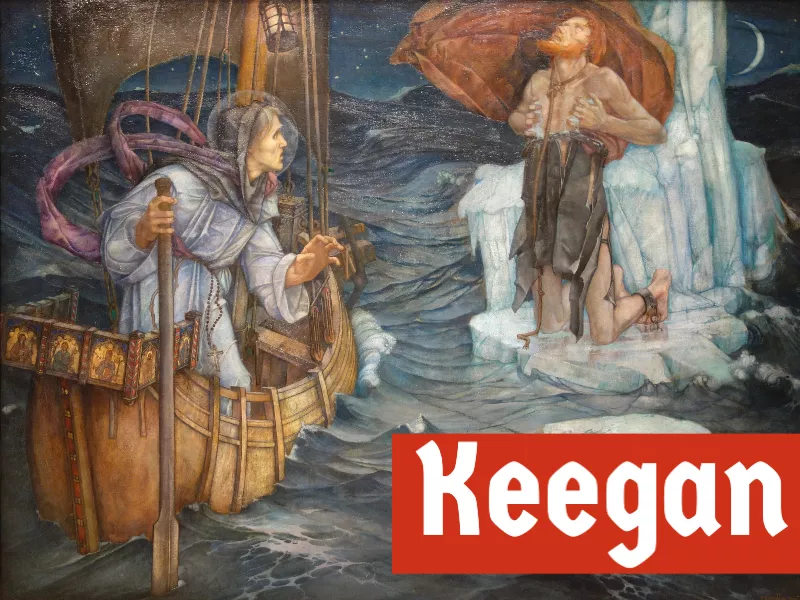
Another Irish surname that’s popular as a first name, Keegan means “son of Egan.”
The double “e” in the middle makes it especially cheery and fun for parents to name their new babe.
Nessa
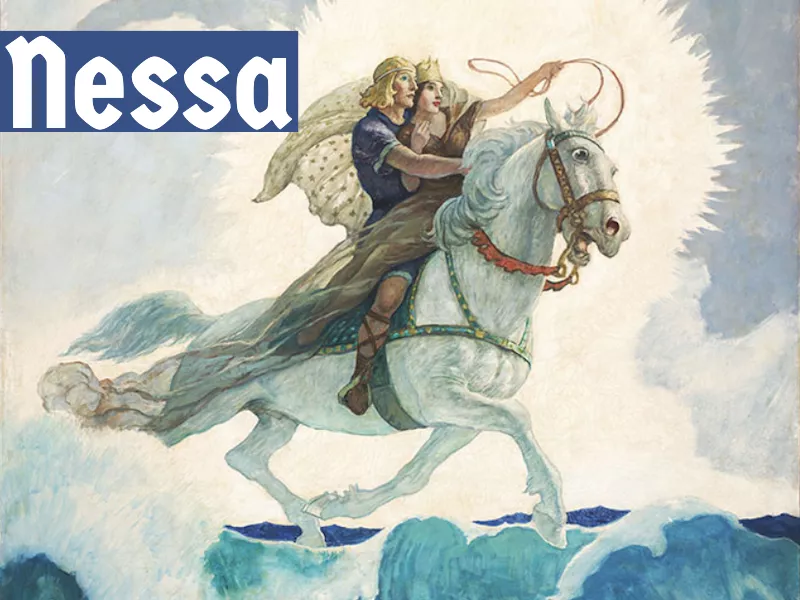
In Irish mythology, Nessa was the ambitious, powerful mother of Conchobar (Conor) MacNessa, King of Ulster. It means “rough” or “not gentle,” so she may not have been the most maternal type.
Admission: Nessa is originally a Viking name, but we reckon it warrants inclusion because Nessa was kicking butt as far back as the 14th century, and she was far from a tragic figure. In fact, she tricked her second husband, Fergus, into giving up his kingdom to his stepson.
Ruairí (pronounced “roor-ee”)
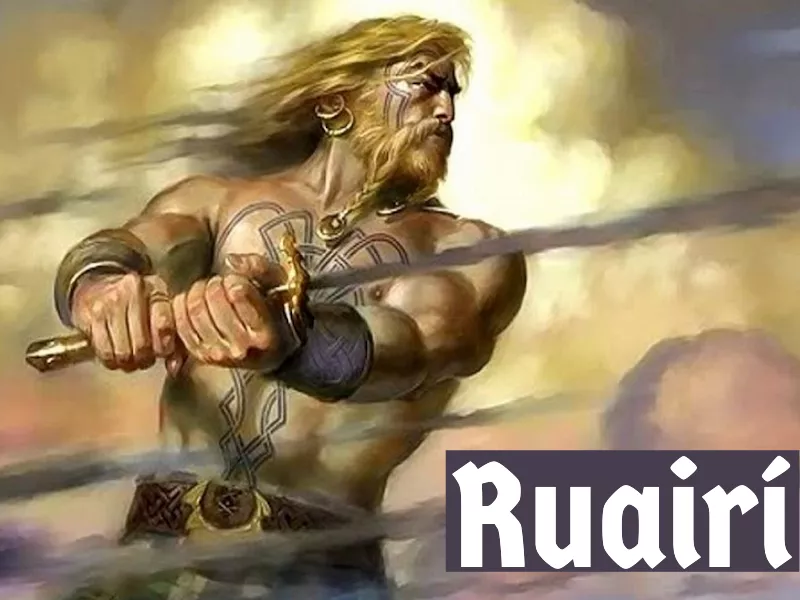
Ruairí O’Connor (in modern Irish) was the last high king of Ireland, who reigned from 1166-1170 until he was forced to abdicate the throne.
Rory, an anglicized version of the name, is popular in the U.S., where a third of all Rories are girls. However, it’s strictly a boy’s name in the U.K. and its homeland of Ireland. Meaning “red king” or “rust-colored,” it’s the perfect choice for a boy with red hair. Other variations of the name include Ruaidhrí, Ruaidhrígh and Raidhrígh.
Sile
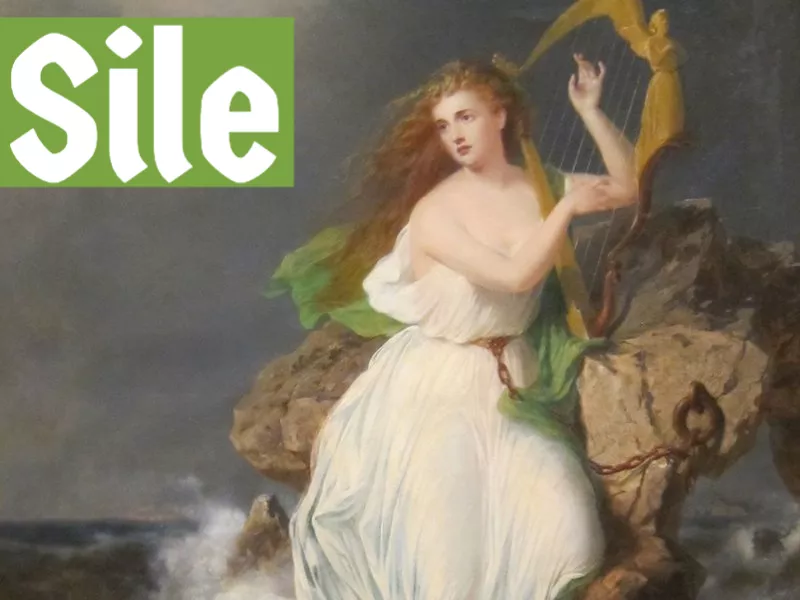
This Irish variation of Cecilia means “blind one.”
Another similar name is Sheila.
Roark
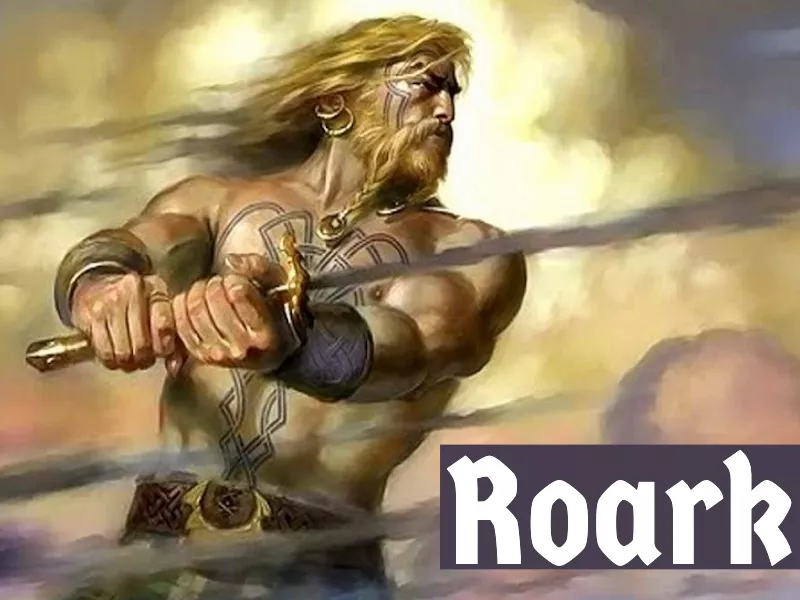
With the meaning “illustrious and mighty,” it’s no wonder Roark was the surname of one of Ireland’s most noble families. It’s thought to be one of the oldest family names in the world, stemming from the death of a young prince named Ruarc in the 10th century.
If you can look past the fact that Roark (or a variation of it) is often given to literary and pop culture villains (such as Howard Roark in Ayn Rand’s “The Fountainhead” and the evil Roark family in the “Sin City” movie franchise), it could be a more interesting option than Rory. Rourke and O’Rourke are also other variations.
Fiadh (pronounced “fee-a”)
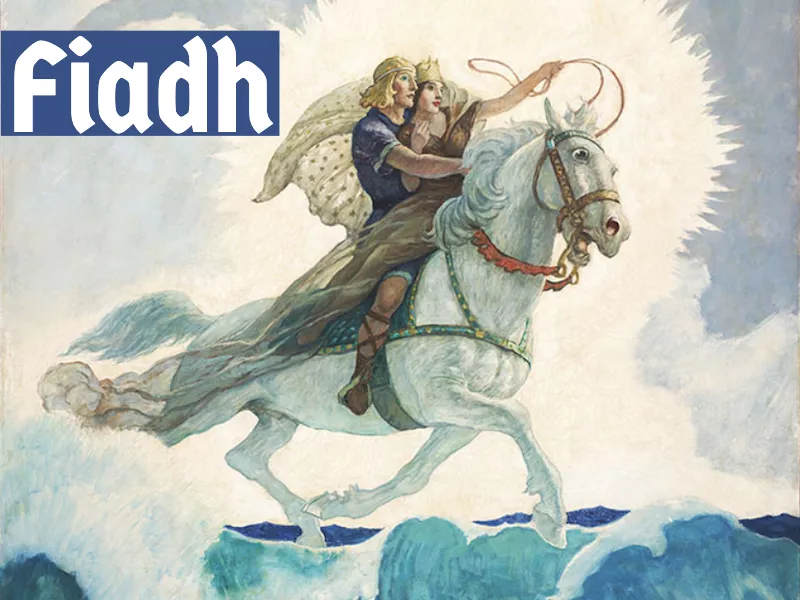
An old Irish word meaning “wild” from “fiadhurla” for “wildlife,” Fiadh has unisex potential, but it’s also the fastest-growing girl’s name in Ireland, reaching No. 10 on the country’s baby name chart in 2018.
Fiadh’s popularity in its homeland seems to have come out of the blue; there are no famous Fiadhs to speak of, but we could well be seeing some celebrity tots with the name over the next couple of years. Another variation is a more phonetic spelling, Fia.
Lorcan
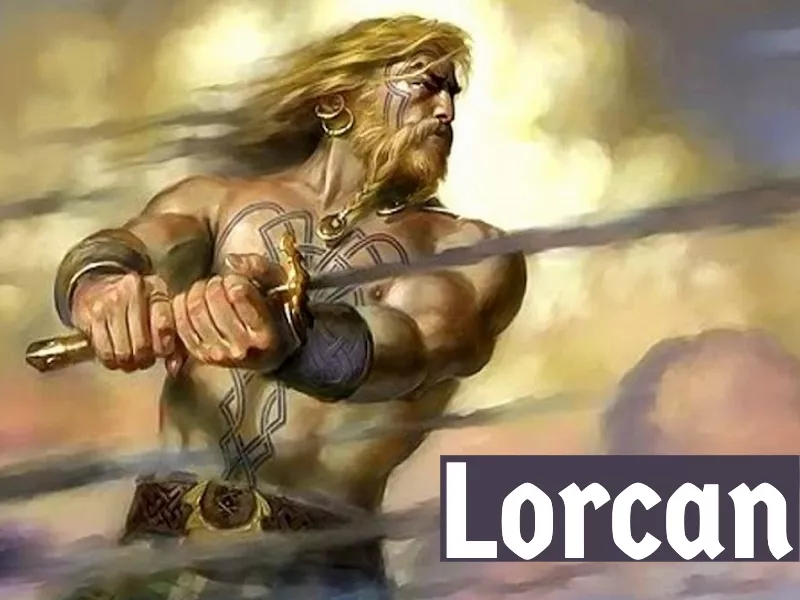
Less common than Connor or Liam but just as strong, Lorcan (meaning “little, fierce”) was the name of several Irish kings, including the grandfather of the most famous High King of Ireland, Brian Boru.
The patron saint of Dublin, the country’s capital city, is Lorcan O’Toole, and the name is also featured in the “Harry Potter” saga in the form of the twin son of Luna Lovegood Scamander. This one definitely has a mysterious vibe, but it’s easy to say and spell — not something you can say about a lot of Irish names.
Eithne (pronounced “en-ya”)
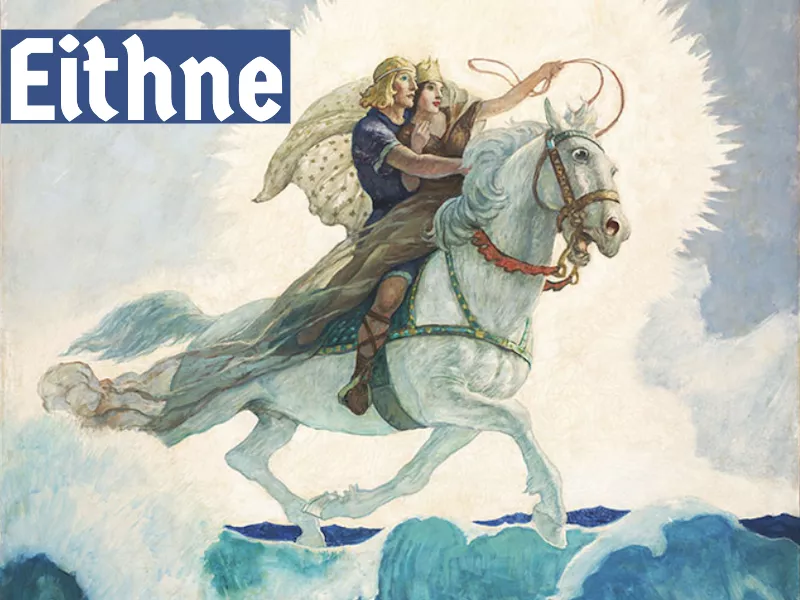
Yet another tragic female figure (there were a lot of them), the goddess Eithne was locked up in a tower by her over-protective father, Balor of the Evil Eye, following the prophecy of a Druid that Balor would die at the hands of his own grandson. He went to great lengths to keep his daughter Eithne away from all men, instructing no less than 12 women to keep guard over her at all times.
Today, however, the name variant Enya is best known for the Irish musician and composer who presumably changed her name to the phonetic spelling to avoid millions of people getting it wrong.